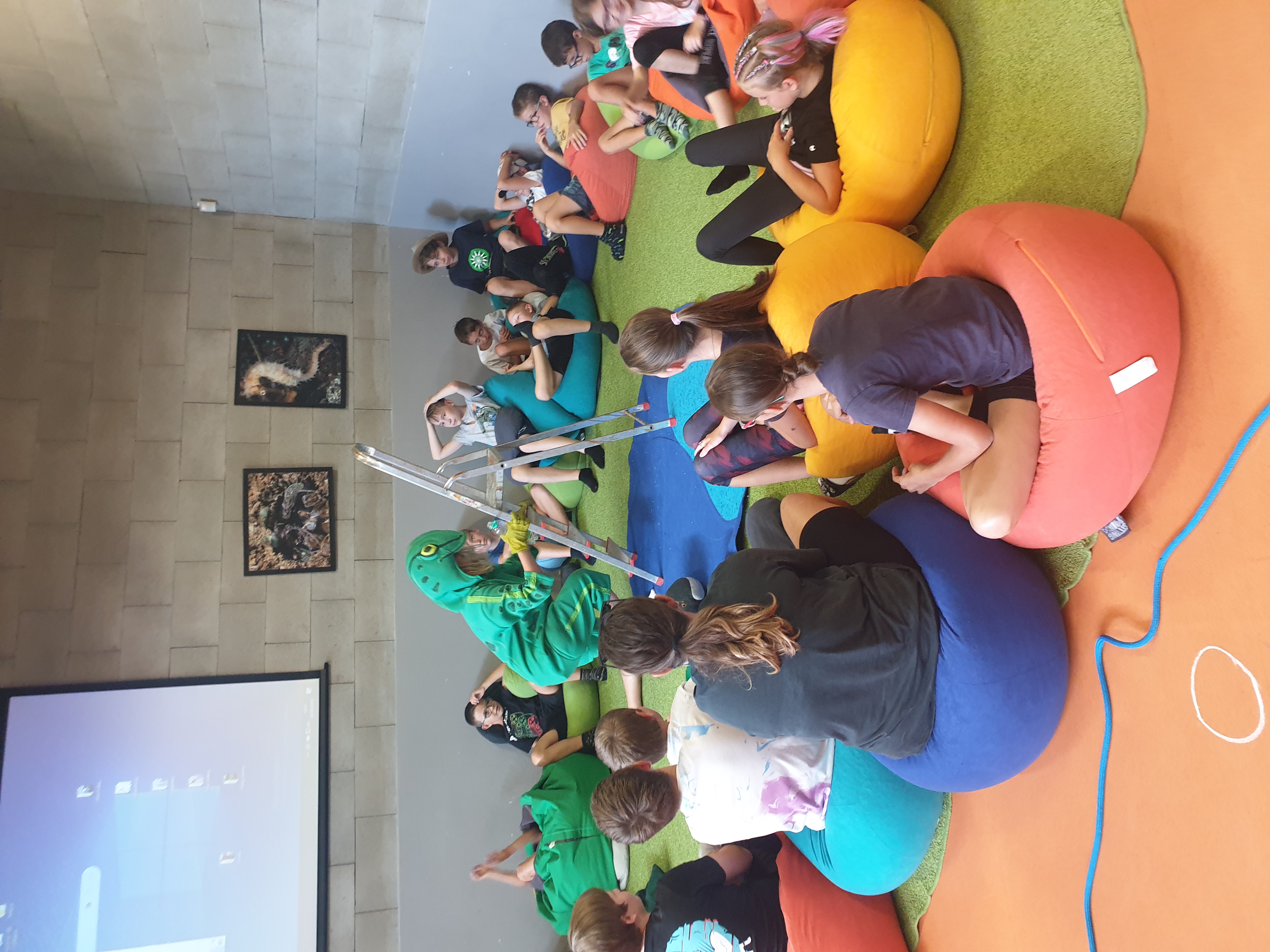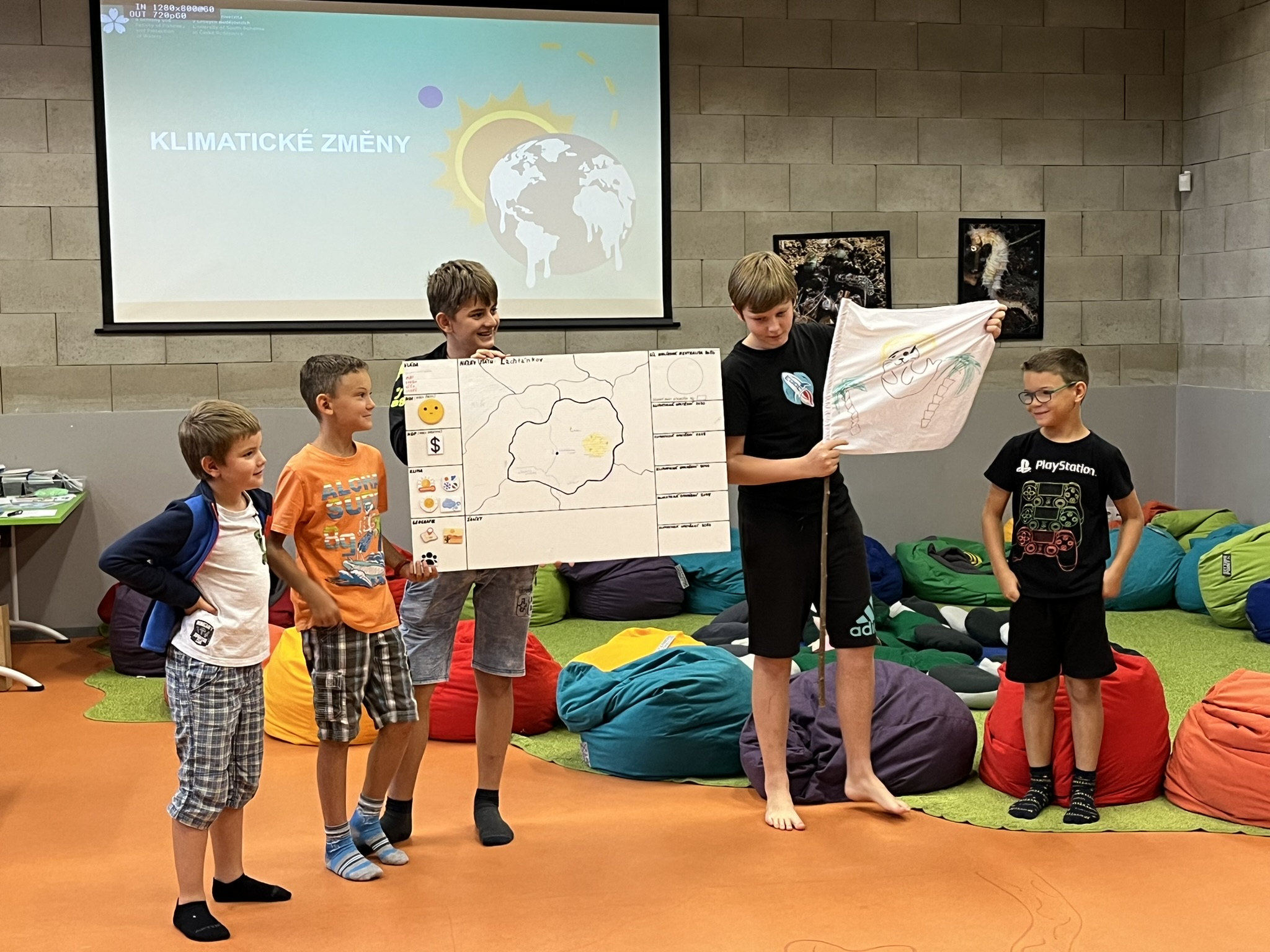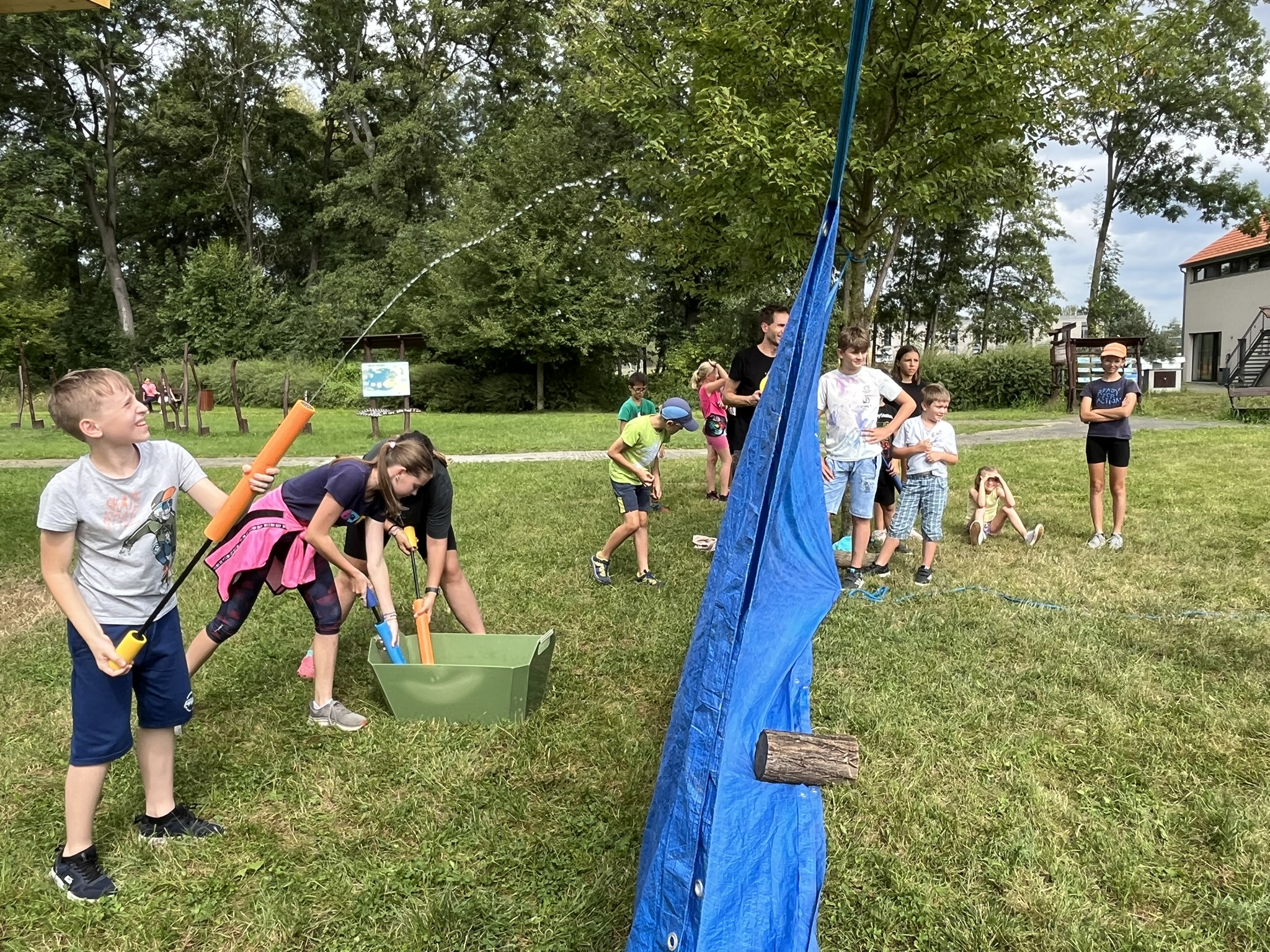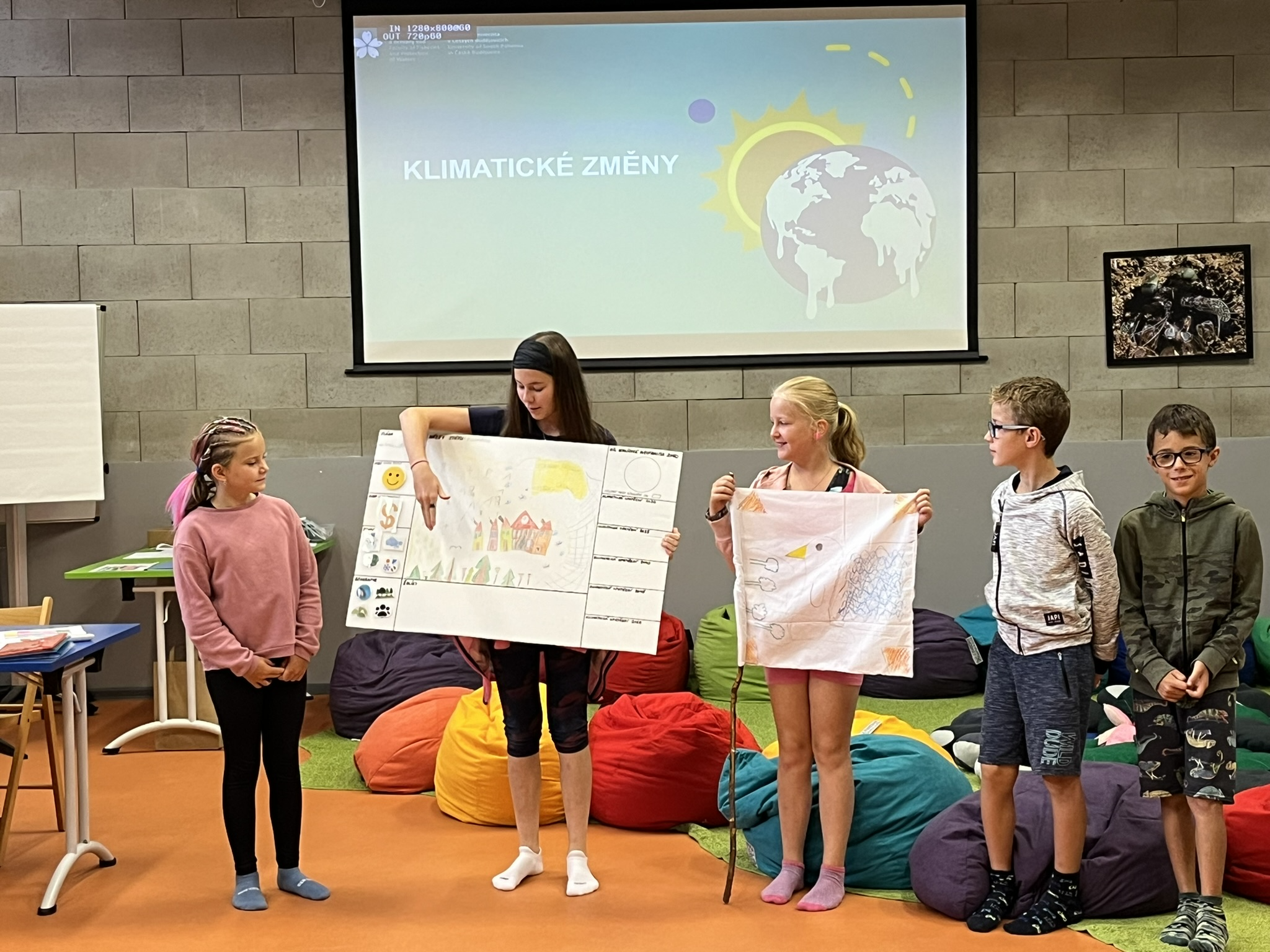Ve dnech 12.–17.05.2024 proběhl již tradiční intenzivní kurz zaměřený na environmentální témata pro Vyšší odbornou školu z rakouského Yspertalu. Devatenáct studentů a dva profesoři měli možnost zažít na míru připravený program, jehož tématy bylo Znečištění vodních ekosystémů, Rybniční ekosystémy, Raci, Říční kontinuum a Akvaponie. Program byl sestaven tak, aby obsahoval nejen teoretické přednášky, ale především praktickou výuku a terénní cvičení. Doplněn byl o sportovní aktivity, společenský večer a návštěvu měst České Budějovice a Vodňany. Účastníci kurzu odjížděli nadšeni a nabiti novými vědomostmi.
Rádi bychom poděkovali všem kolegům za perfektně připravené odborné bloky programu a odvedenou práci, díky které nám tato škola zachovává věrnost a každoročně se vrací.

- Fotogalerie:
- Foto:
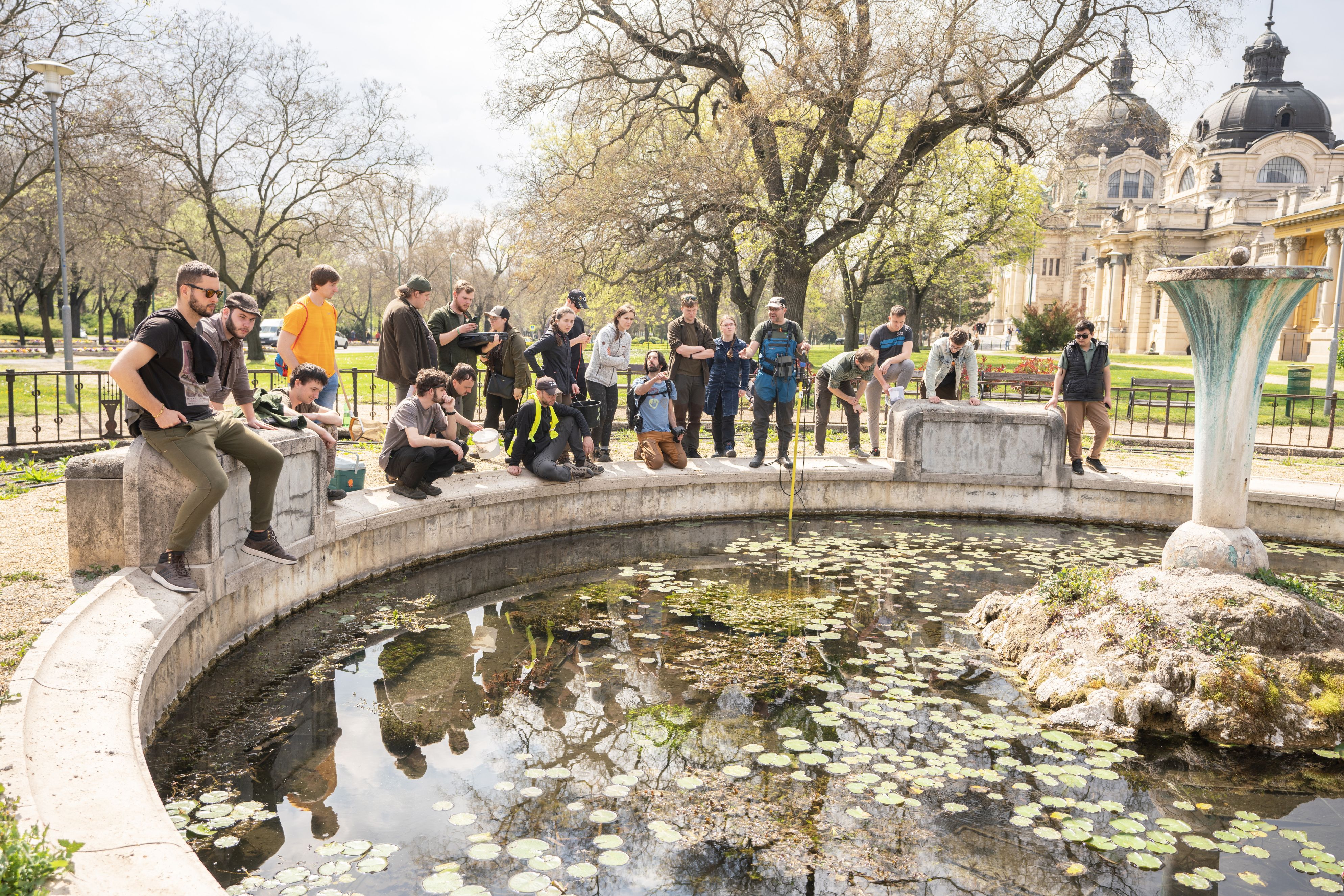 , Text k fotce:
Fontána napájená termálním pramenem uprostřed Budapešti v parku Varosliget hostící raky mramorované, krevetky červené a několik druhů akvarijních ryb a rostlin.
, Text k fotce:
Fontána napájená termálním pramenem uprostřed Budapešti v parku Varosliget hostící raky mramorované, krevetky červené a několik druhů akvarijních ryb a rostlin. - Foto:
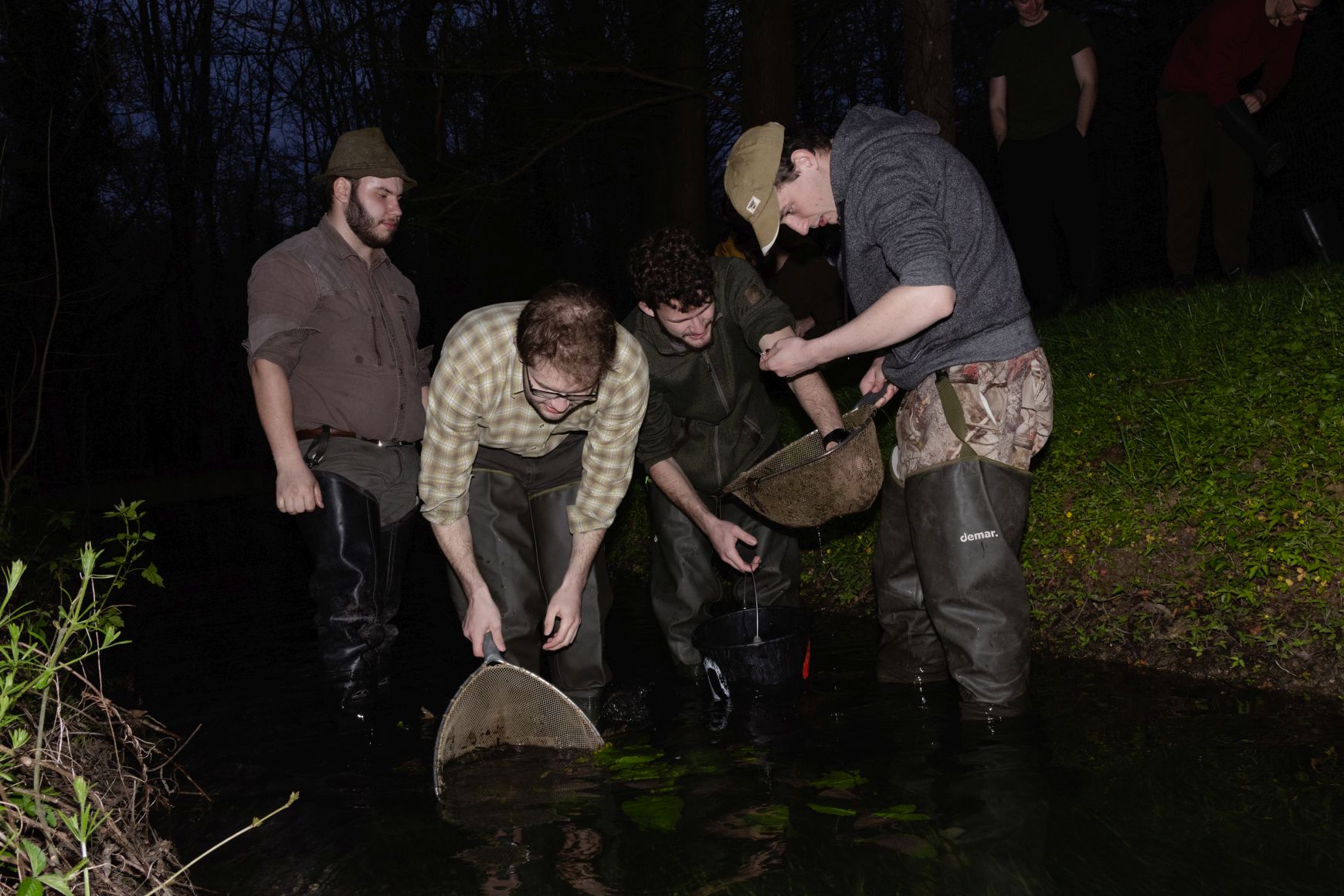 , Text k fotce:
Večerní odlov raků a ryb na severním výtoku termálního jezera Héviz
, Text k fotce:
Večerní odlov raků a ryb na severním výtoku termálního jezera Héviz - Foto:
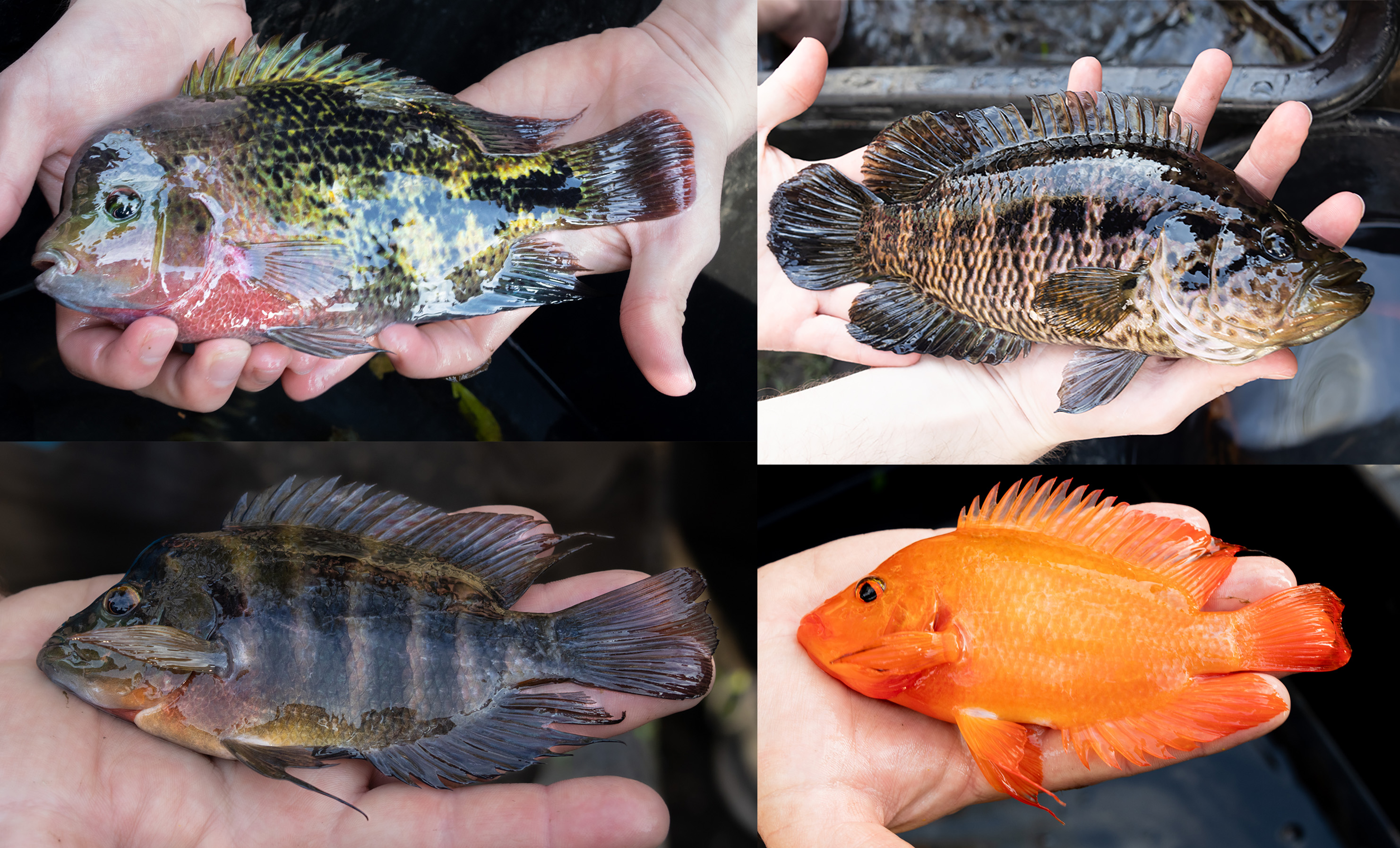 , Text k fotce:
Různé druhy cichlid odlovené el. agregátem ve výtoku jezera Héviz
, Text k fotce:
Různé druhy cichlid odlovené el. agregátem ve výtoku jezera Héviz - Foto:
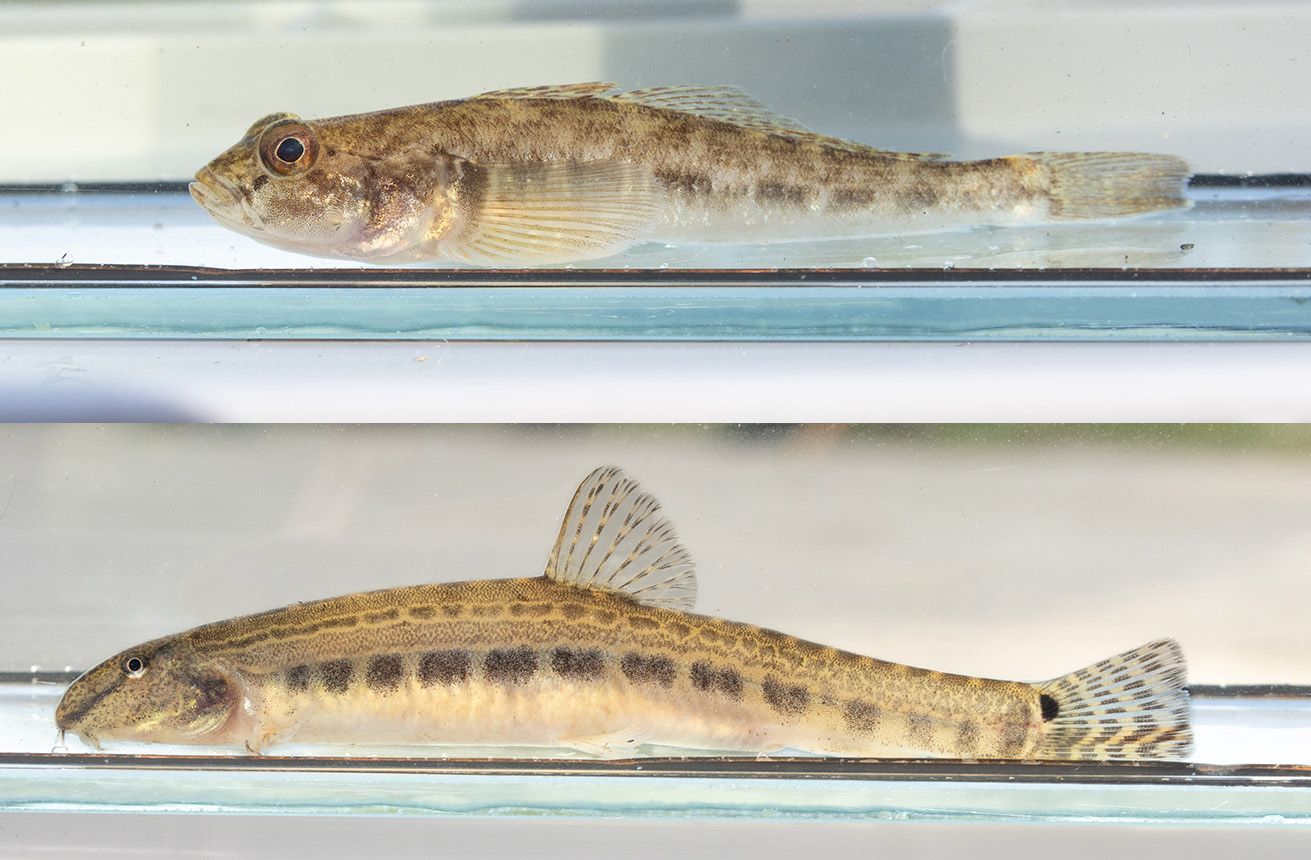 , Text k fotce:
Nepůvodní druh hlaváč říční (nahoře) a původní zástupce fauny sekavec podunajský (dole)
, Text k fotce:
Nepůvodní druh hlaváč říční (nahoře) a původní zástupce fauny sekavec podunajský (dole) - Foto:
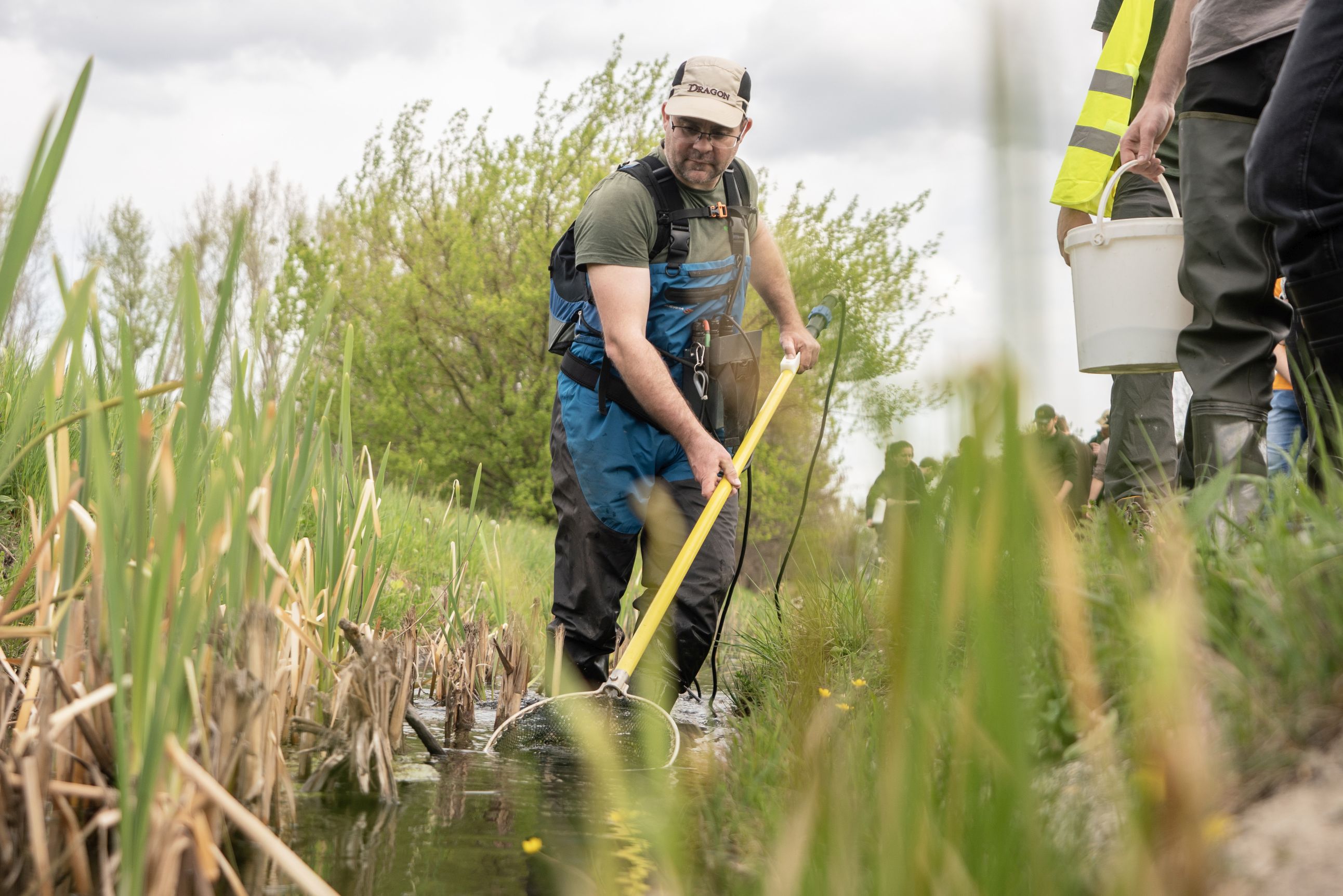 , Text k fotce:
Odlov elektrickým agregátem na termálním přítoku potoka Barát
, Text k fotce:
Odlov elektrickým agregátem na termálním přítoku potoka Barát - Foto:
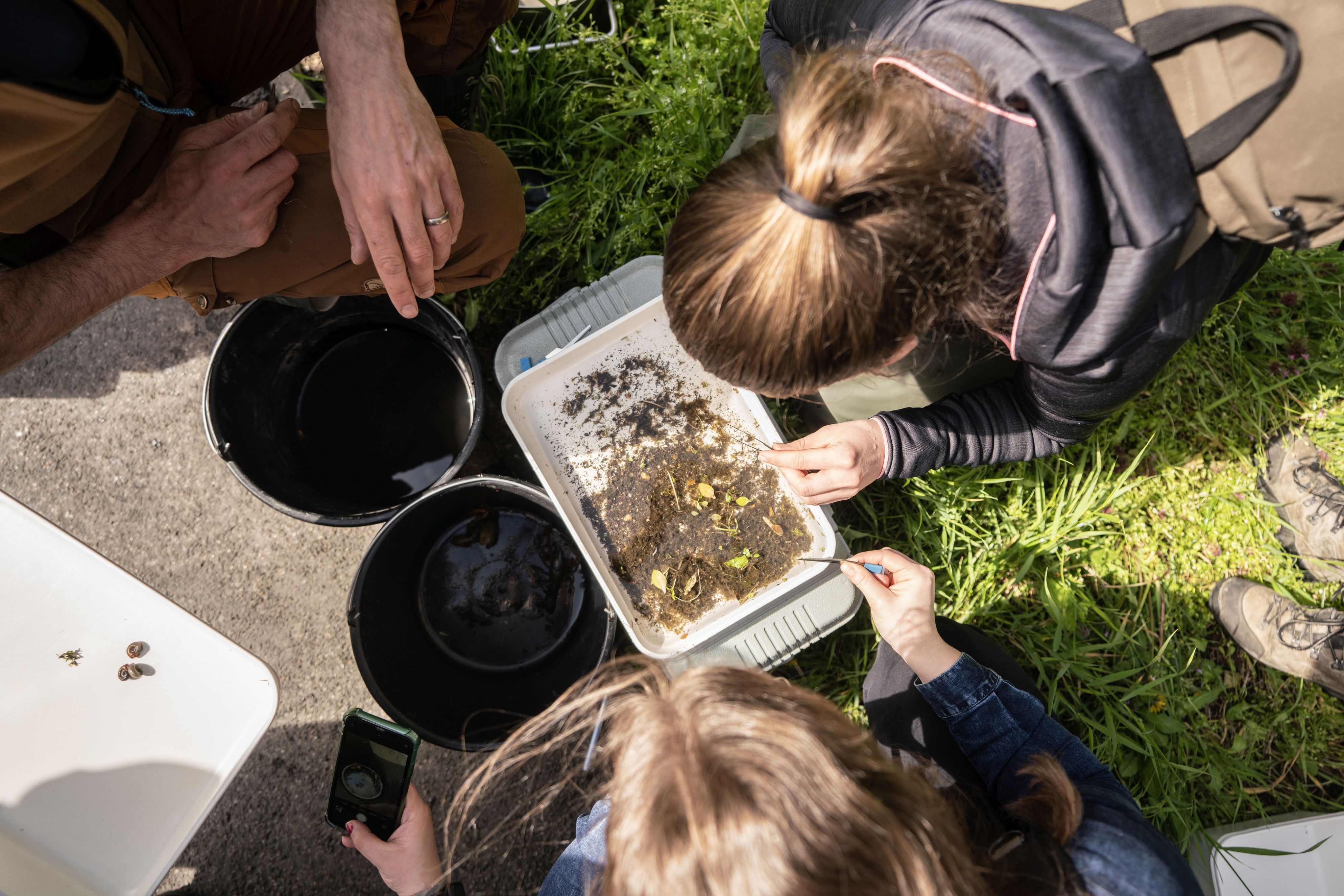 , Text k fotce:
Přebírání vzorku makrozoobentosu z přítoku potoka Barát
, Text k fotce:
Přebírání vzorku makrozoobentosu z přítoku potoka Barát - Foto:
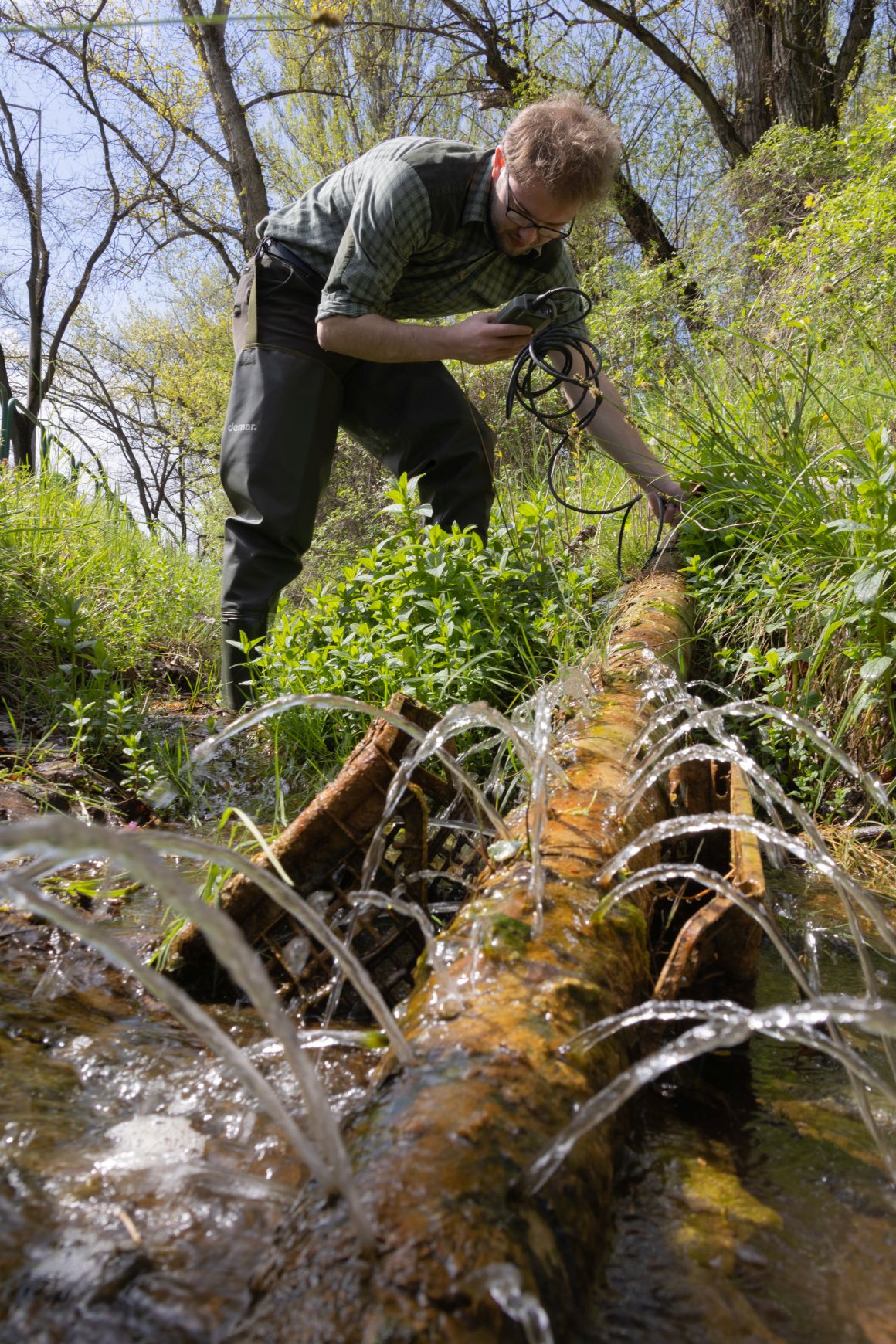 , Text k fotce:
Měření fyzikálně chemických parametrů pramene přítoku potoka Barát.
, Text k fotce:
Měření fyzikálně chemických parametrů pramene přítoku potoka Barát. - Foto:
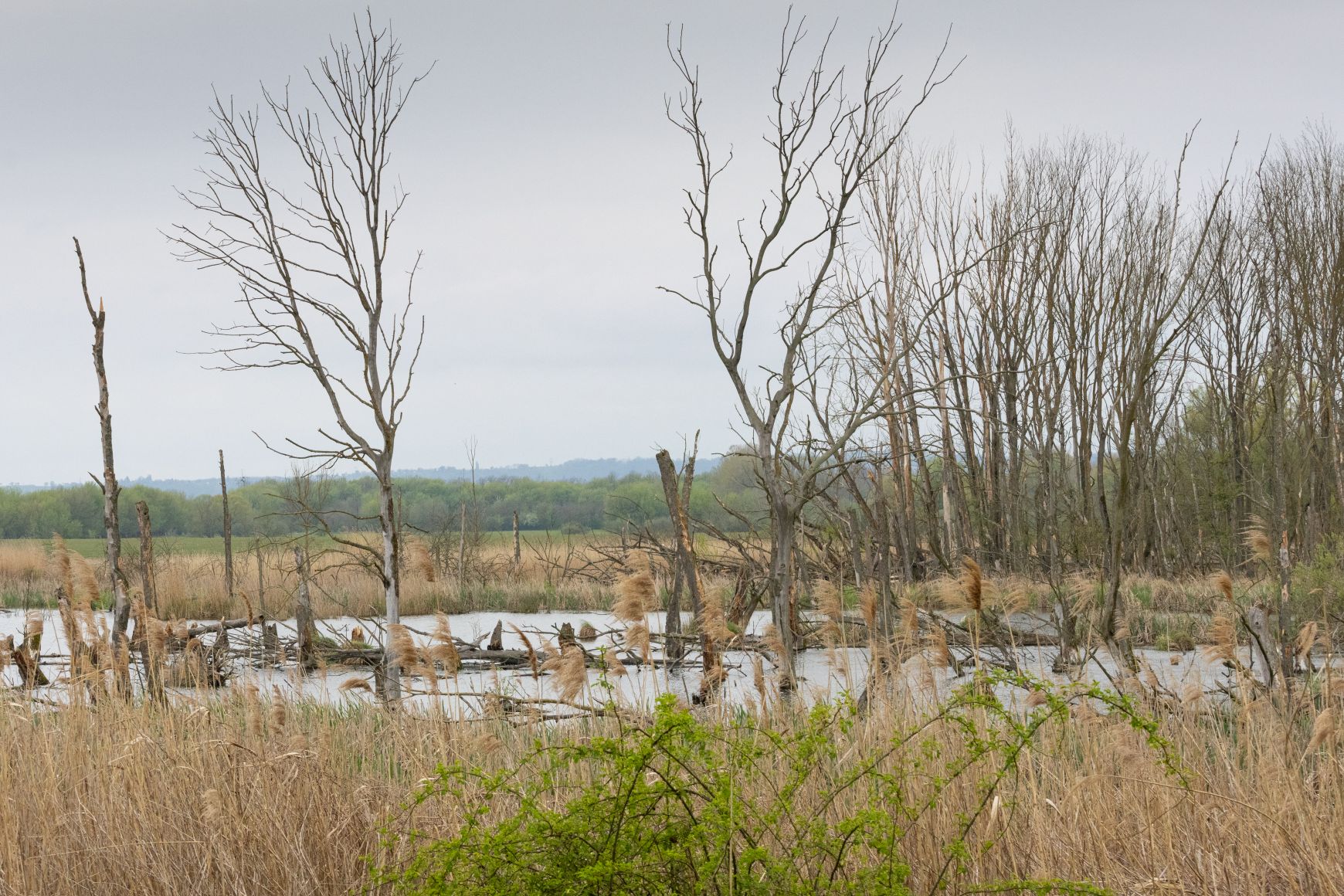 , Text k fotce:
Kis-Balaton water protection area – umělý mokřad vybudovaný na zachytávání žuivin z řeky Zala, hlavního přítoku jezera Balaton
, Text k fotce:
Kis-Balaton water protection area – umělý mokřad vybudovaný na zachytávání žuivin z řeky Zala, hlavního přítoku jezera Balaton - Foto:
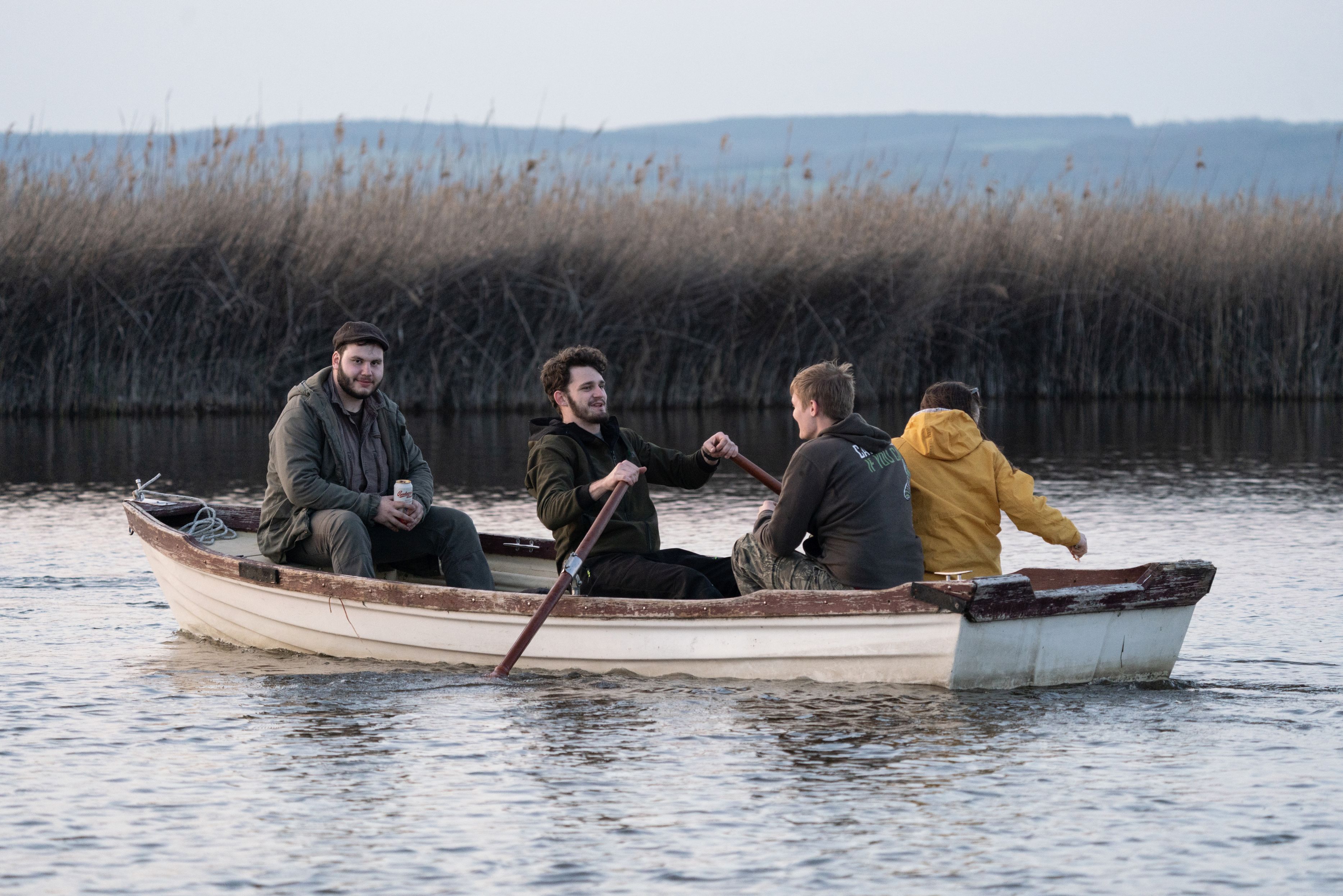 , Text k fotce:
Přejezd na místo vzorkování zooplanktonu a makrozoobentosu na jezeře Velence
, Text k fotce:
Přejezd na místo vzorkování zooplanktonu a makrozoobentosu na jezeře Velence - Foto:
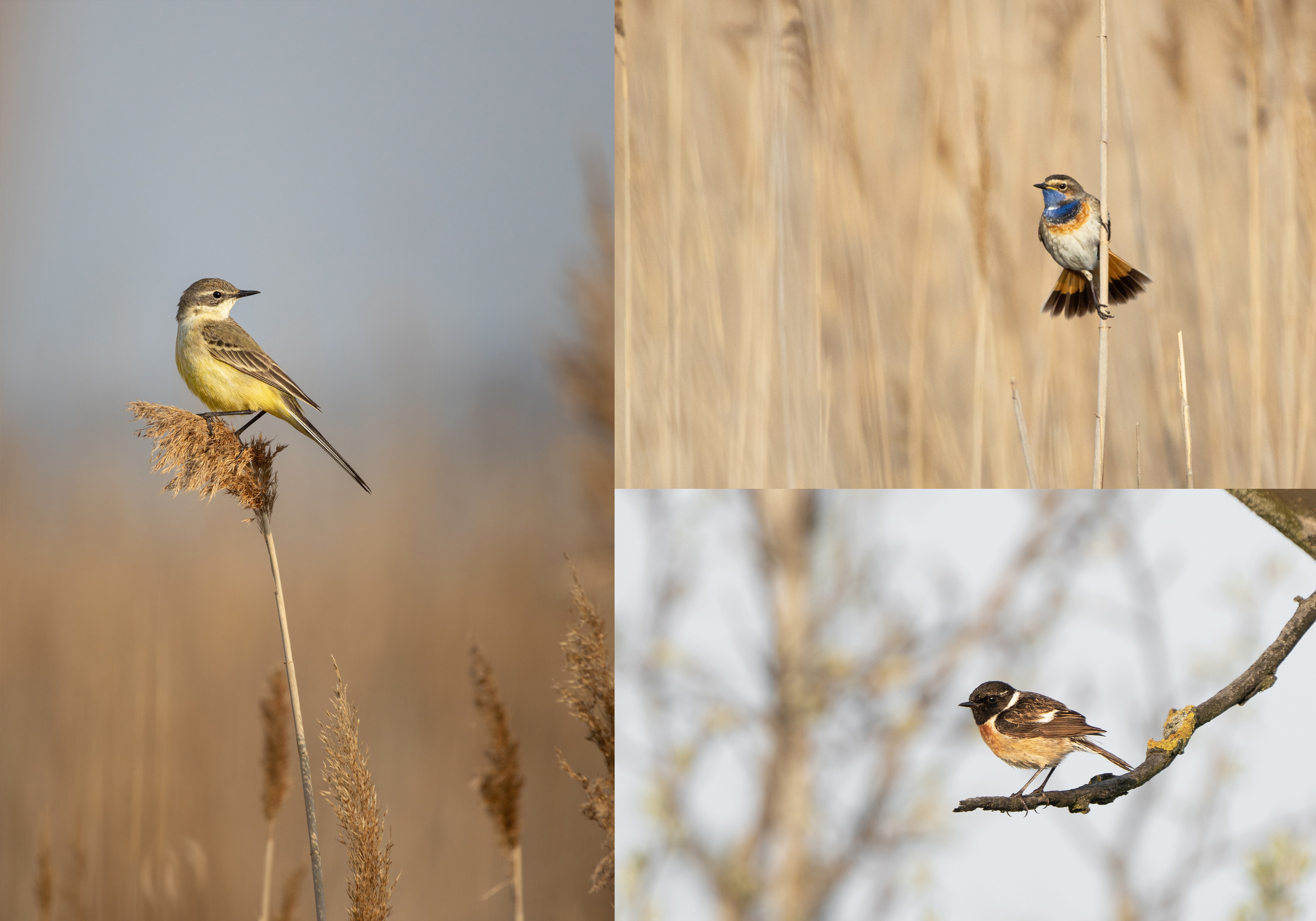 , Text k fotce:
Zástupci ptačí fauny rákosin jezera Velence. Konipas luční, slavík modráček a bramborníček černohlavý
, Text k fotce:
Zástupci ptačí fauny rákosin jezera Velence. Konipas luční, slavík modráček a bramborníček černohlavý
Je jen málo míst s překvapivou diverzitou nepůvodních vodních organismů a mnoho z nich se nachází na území Maďarska, přesněji řečeno v tamních termálních vodách.
Proto jsme se studenty vyrazili na lokality, které se v řadě případů staly objektem našeho výzkumu v posledních letech, aby se také oni seznámili se zajímavými společenstvy těchto specifických habitatů. Měli jsme možnost propátrat odtoky jezera Hévíz, největšího termálního jezera v Evropě, termální nádrže v parku Városliget v centru Budapešti nebo termální přítok potoka Barát a potok Sulák. Na těchto lokalitách si mohli studenti prakticky vyzkoušet odchyt/odlov raků, ryb a makrozoobentosu a na vlastní oči tak vidět velmi bohaté společenstvo cichlid, syntopickou populaci raka pruhovaného (Faxonius limosus) a červeného (Procambarus clarkii), raka mramorovaného (P. virginalis) a akvaristy velmi oblíbené krevetky červené (Neocaridina davidi) a mnoho dalších nepůvodních druhů organismů. Jako odměna po dlouhém dnu plném odlovů si studenti pochutnali na ulovených a vařených racích (s odkazem na počet ulovených druhů se jednalo o pokrm s názvem „raci tří barev“, ačkoliv po uvaření byli červení úplně všichni).
V kontrastu s těmito habitaty prosycenými nepůvodními druhy jsme navštívili přírodní mokřady Kis-Balaton, vybudované za účelem zlepšení kvality přítokové vody do jezera Balaton a jezero Velence, které krom specifických vlastností vody a plovoucích ostrovů rákosu, vyniká obrovskou diverzitou vodního a mokřadního ptactva. V průběhu exkurze nás provázeli naši maďarští kolegové András Weiperth a Árpád Ferincz, díky kterým jsme mohli pomocí elektrolovu spatřit většinu zde se vyskytujících druhů ryb, hořavku duhovou (Rhodeus sericeus), sekavce podunajského (Cobitis elongatoides). Blatňáka tmavého (Umbra krameri) v oblasti Kis-Balatonu jsme bohužel neviděli a od naší první návštěvy zde před čtyřmi lety je zřejmě na ústupu před nepůvodními hlaváči černoústým (Neogobius melanostomus) a říčním (N. fluviatilis) a také hlavačkovcem Glenovým (Percottus glenii). I přes obrovskou hustotu nepůvodních druhů se podařilo odlovit původní druh vodní želvy – želvu bahenní (Emys orbicularis).
Exkurzi jsme zakončili návštěvou biologické stanice na břehu Neziderského jezera ve městečku Illmitz (Rakousko), kde nám Gilbert Hafner poutavě představil historii Neziderského jezera a na krátké vycházce do okolí biologické stanice ukázal místní fenomén slanisek hostící opět vysokou diverzitu mokřadních a vodních ptáků, ale i fauny bezobratlých.
Chceš mít tyto zážitky i Ty? Přihlas se ke studiu na FROVceuž dnes.
Autoři fotografií: Jan Škrabánek a Martin Bláha
Za FROV JU se zúčastnili tito zaměstnanci: Antonín Kouba, Martin Bláha, Lenka Kajgrová
For the second year, the field trip with students was organised to visit sites with a strikingly high diversity of non-native species in Hungary, especially in the thermal water localities. We started our excursion visiting the biological station on the shore of Lake Neusidler in the town of Illmitz (Austria), where Gilbert Hafner gave us an engaging presentation of the history of the Lake and, on a short walk around the biological station showed the local phenomenon of salt marshes, once again hosting a high diversity of wetland and water birds, as well as specific invertebrate fauna.
We had the opportunity to explore the outflows of Lake Héviz, the largest thermal lake in Europe, the Városliget park in the Budapest centre, a thermal tributary of the Barát brook, sites rich for non-native organisms, but also Kis-Balaton artificial wetland constructed to protect Lake Balaton from high nutrient loads. At these locations, students could practically try catching crayfish, fish and macrozoobenthos and thus practically see a very rich community of African and South American cichlids, a syntopic population of spiny cheek crayfish (Faxonius limosus) and red swamp crayfish (Procambarus clarkii), marbled crayfish (P. virginalis) and red cherry shrimp (Neocaridina davidi), very popular with aquarists, and many other non-native species including young false map turtle (Graptemys pseudogeographica), but also critically endangered European pond turtle (Emys orbicularis).
As a new part of the excursion, we visited the Asian market, literally a source of many non-native species. Indeed, besides "traditional releases" of aquarium species to the wild, we are also newly encountering organisms originally intended for human consumption – especially crabs. In order not to leave empty-handed, we purchased North American blue crabs (Callinectes sapidus) imported from Greece, where they are an invasive species, for tasting purposes. Recently, there have also been recordings of their presence in the Danube in Budapest. The blue crabs were a reward after a long day of (cray)fishing when the students enjoyed their cooking and tasting. Another newly visited site was the Limnological Station on the shores of Lake Balaton in the town of Tihány. Here, Péter Takács, Blanka Gál, and Bálint Preiszner presented their activities and took us to a unique system of tanks for mesocosm experiments on the shore of the lake. During the field trip, we were accompanied by our Hungarian colleagues. Special thanks go especially to András Weiperth and Árpád Ferincz.
Author of text and photos: Martin Bláha
Another TNA project within the Aquaexcel3.0 has been implemented at the Faculty of Fisheries and Protection of Waters USB, Institute of Aquaculture and Protection of Waters, Laboratory of Nutrition.
The lead researcher is Dr. Zala Schmautz from Zurich University of Applied Sciences.
MSc. Schmautz succeeded with the project called “The influence of plant species and cropping systems on the microbial consortia of aquaponics and hydroponics”. The responsible researcher for the FFPW USB is MSc. Ewumi Azeez Folorunso, Ph.D.
Dr. Zala is spending this week in the Laboratory of Nutrition in České Budějovice where she is conducting research on the effect of plant species and cropping systems on the diversity and abundance of microbial consortia in decoupled aquaponics and hydroponics systems. Using her research experience and expertise in soilless systems, Dr. Zala will determine the influence of the microbial diversities on the growth and nutrient uptake in basil and lettuce grown in mono or mixed cropping systems.
The access is free of charge. The AE3.0 project will pay for the experimental costs as well as the travel and subsistence costs.
The TNA call is continuous so you can apply for access to 40 partners´ installations at any time within the duration of the AE3.0 project. More information at the project website.

This project has received funding from the European Union’s Horizon 2020 research and innovation programme under grant agreement No. 871108 (AQUAEXCEL3.0). This output reflects only the author’s view and the European Commission cannot be held responsible for any use that may be made of the information contained therein.
- Fotogalerie:
- Foto:
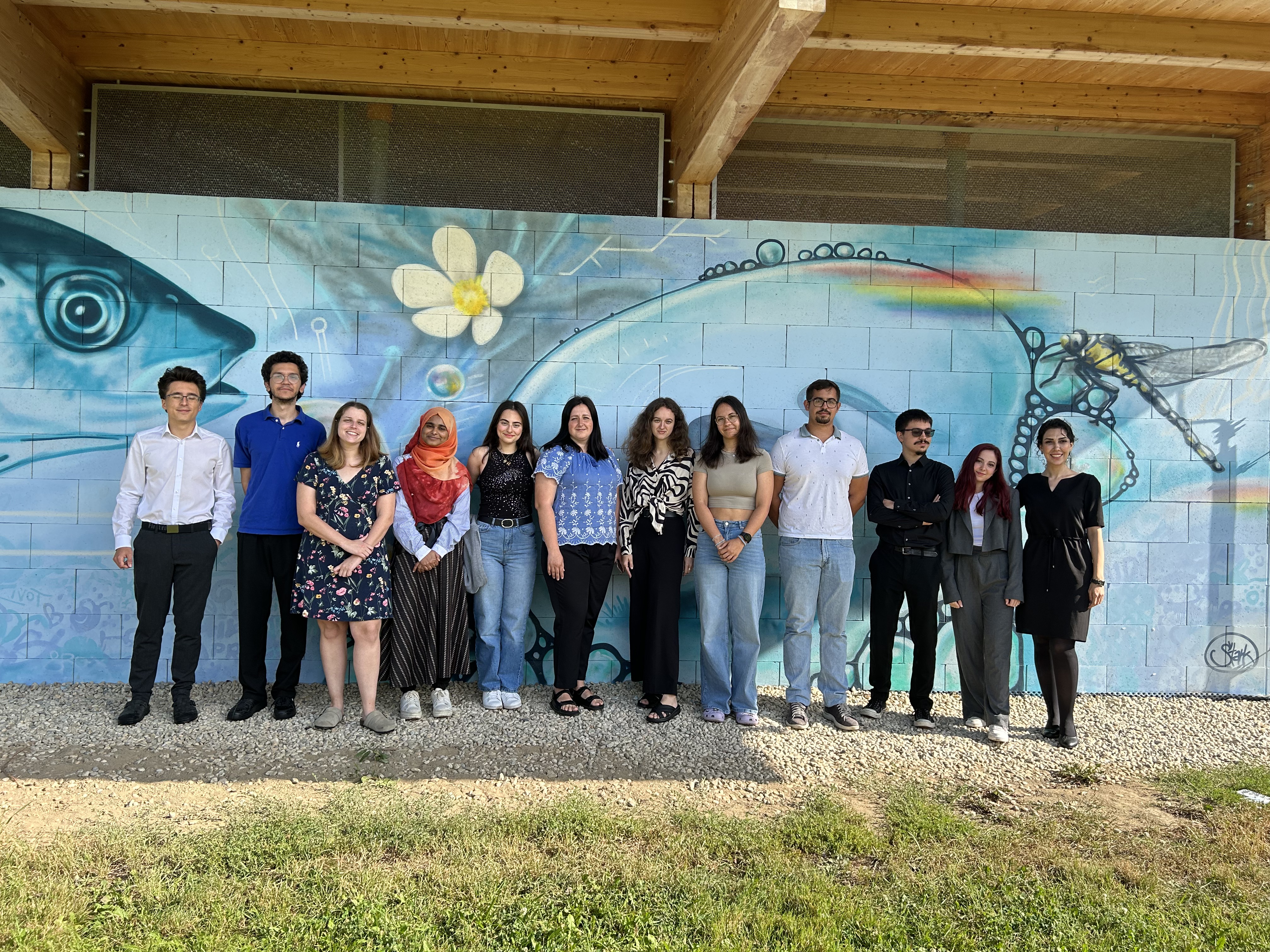
- Foto:
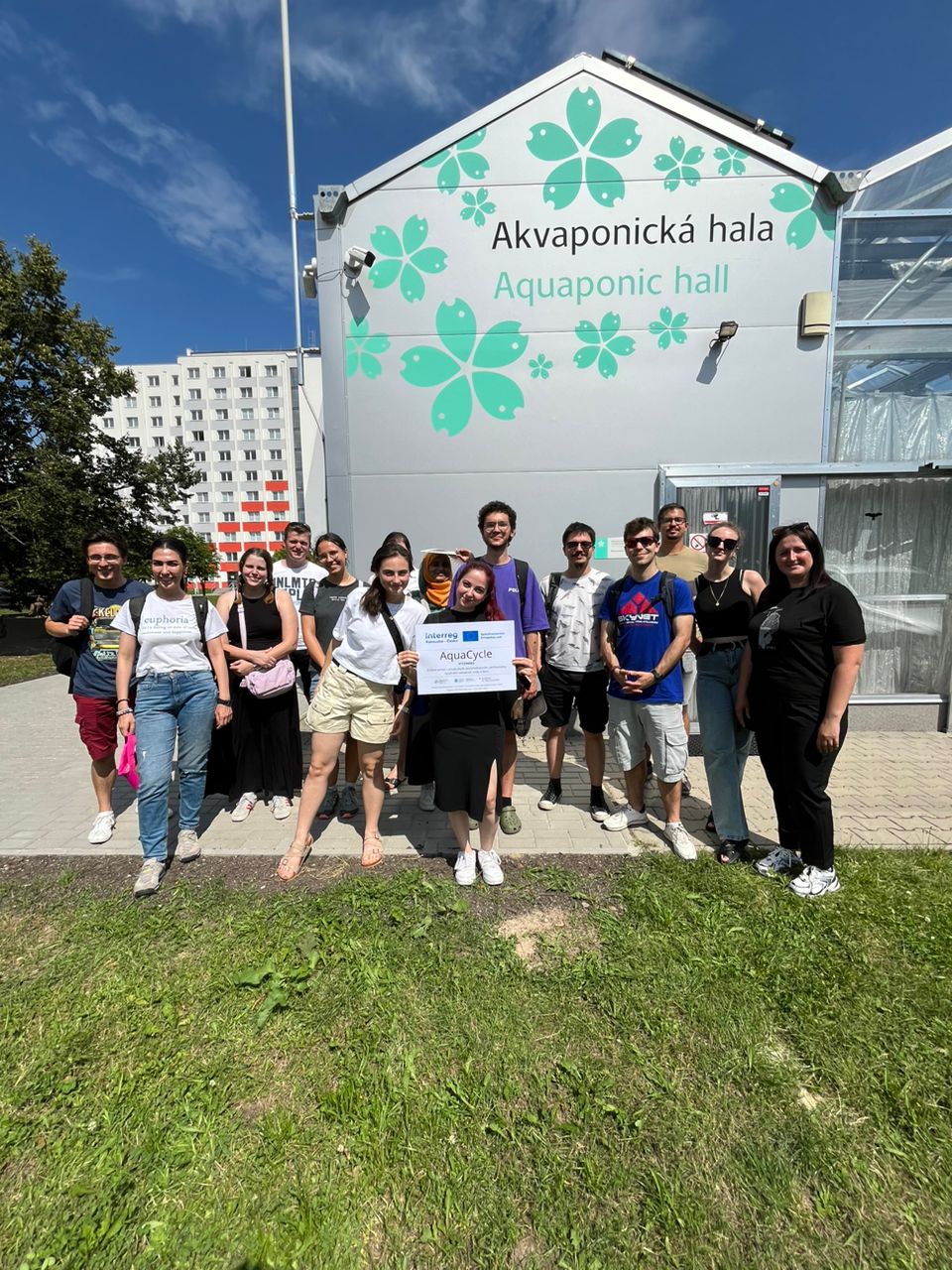
- Foto:
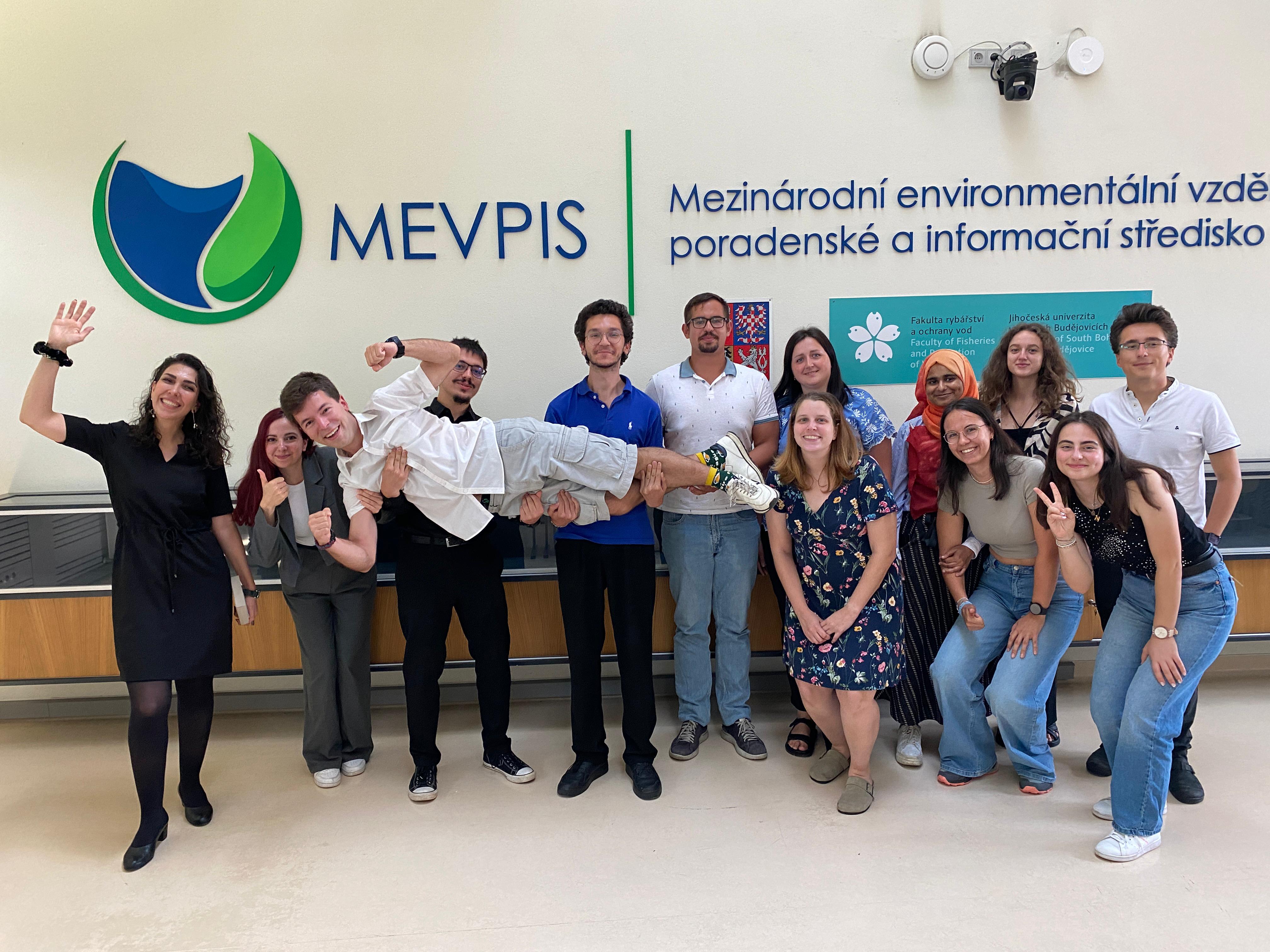
- Foto:
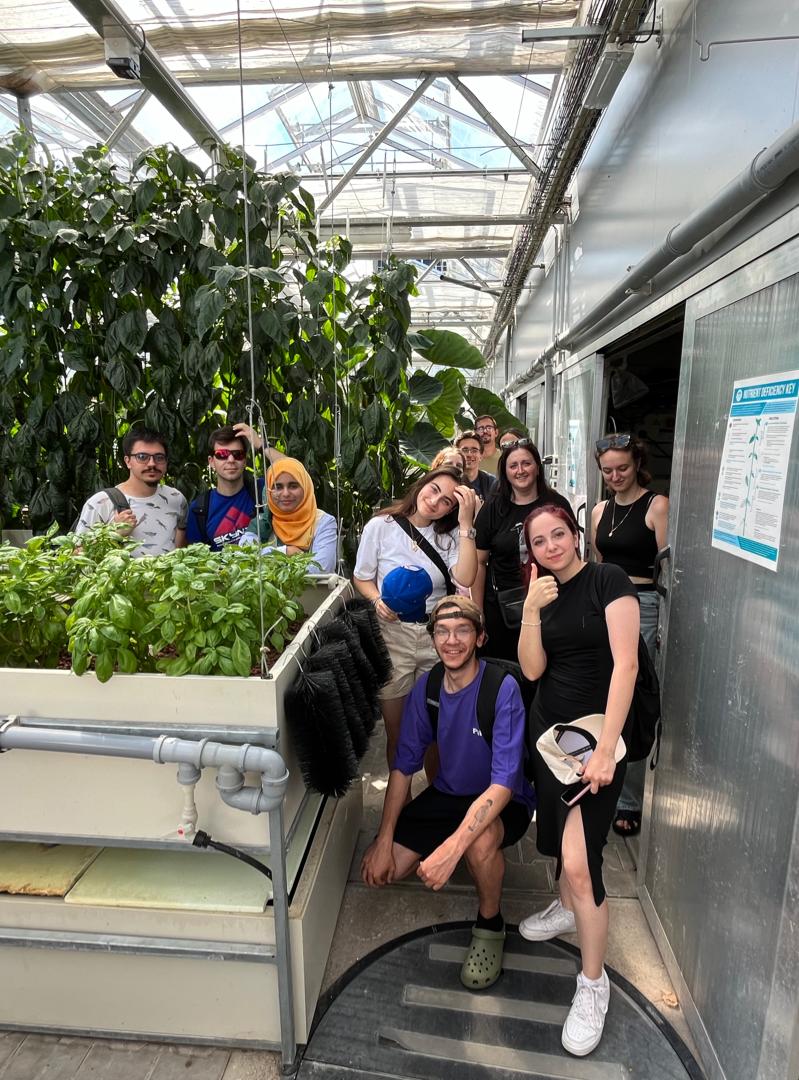
- Foto:
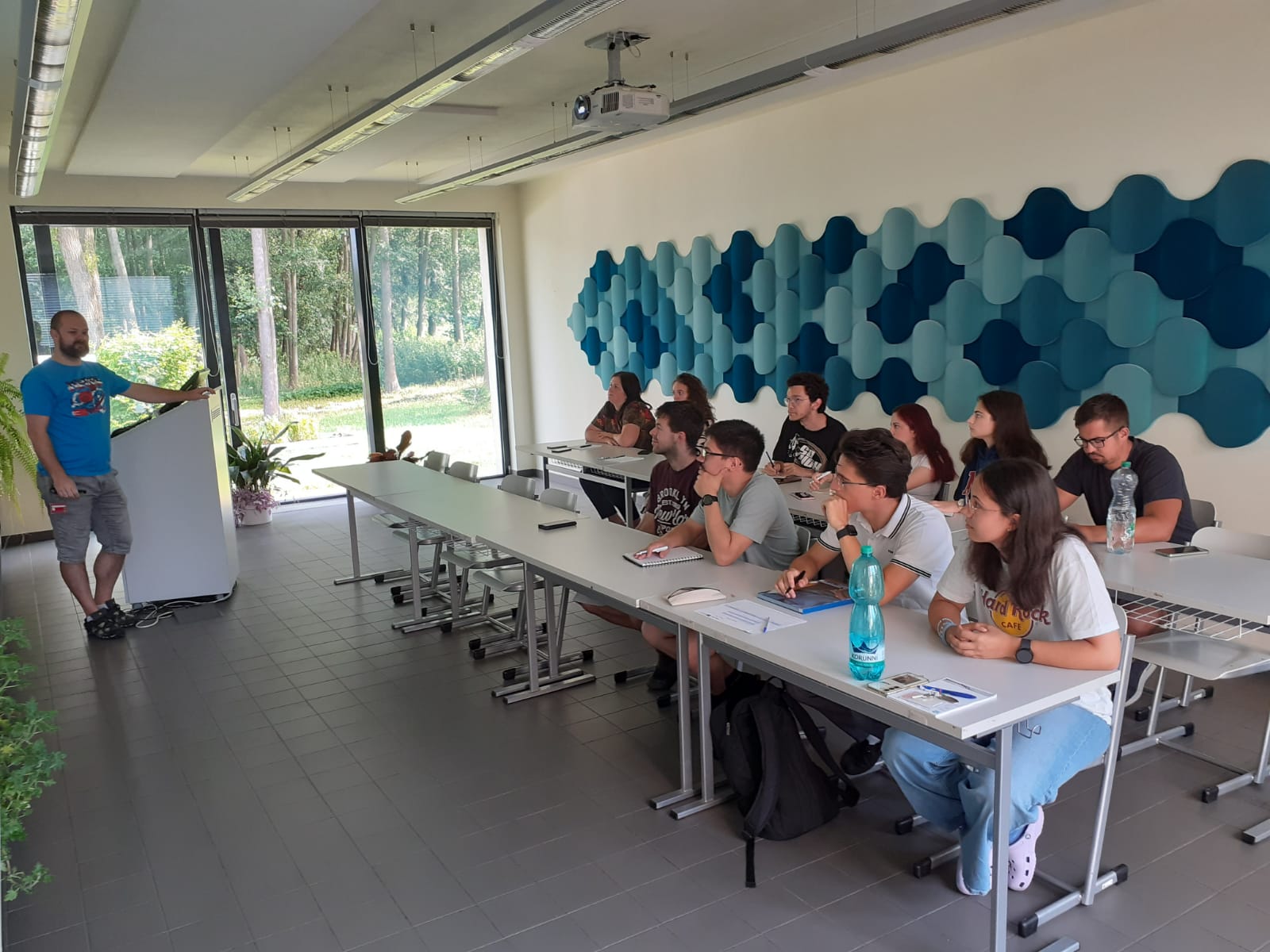
Another year of the International Summer School took place at the Faculty of Fisheries and Protection of Waters USB, the MEVPIS centre Vodňany, from 1 stto 19thJuly 2024. 13 foreign students, took part and worked for three weeks on projects under the expert guidance of FFPW USB Ph.D. students both during the field exercises and at the workplaces of the FFPW USB. The program was, among other things, varied by excursions and social events.
The conclusion was in the spirit of a competition during which summer school students presented the results of their month's work in front of an expert committee. Congratulations to the winners Mafalda Almeida, Jacek Sadowski and Sara Ahani.
The International Summer School is supported by the budget of the Faculty of Fisheries and Protection of Waters USB and the budget for the development of the University of South Bohemia in České Budejovice.
Interview with the dean, Prof. Ing. Tomáš Policar, Ph.D. about studying at the Faculty of Fisheries and Water Protection USB you can find in the April issue of the magazine www.Casopis.KamPoMaturite.cz in the on-line version here.
The Faculty of Fisheries and Water Protection of the University of South Bohemia announces that the XXI. Toxicology Conference TOXICITY AND BIODEGRADABILITY OF WASTE AND SUBSTANCES OF SIGNIFICANCE IN THE WATER ENVIRONMENT will take place from 21 to 22 August 2024.
The main theme of the conference will be the assessment of the impact of foreign substances and environmental factors on aquatic organisms and monitoring of the level of contamination of the aquatic environment. The conference will also include the traditional Competition for the Best Student Paper Award of Prof. RNDr. Vladimír Sládeček, DrSc.
Venue: FFPW USB, MEVPIS Vodňany, large lecture hall
Interested parties can apply by 7 June 2024 at the latest to the following address: Tato e-mailová adresa je chráněna před spamboty. Pro její zobrazení musíte mít povolen Javascript., any questions will be answered by Ing. Olga Valentová - tel.: +420 387 774 754.
Nedávný objev na Fakultě rybářství a ochran vod JU zlepšil naše chápání cyklování živin a růstu řas ve sladkých vodách. Výzkum ukazuje, že ryby po trávení potravy uvolňují živiny, což může vést k eutrofizaci kvůli přirozeným nedostatkům ve stravě. Klíčový problém spočívá v metabolismu ryb. Úpravou krmení ryb, abychom tyto nedostatky kompenzovali, můžeme snížit množství fosforu, které uvolňují, omezit růst řas a pomoci rybám absorbovat více fosforu z vody. Tento přístup by mohl pomoci kontrolovat hladiny živin a zabránit nadměrnému růstu řas v mělkých jezerech a rybnících.
Podrobnosti zde.
Jarní výlovy našich rybníků s generačními rybami pro zajištění jejich reprodukce v rybí líhni úspěšně probíhají i přes atypický průběh teplot pro stávající roční období.
Při výlovech a následné inventarizaci chovaného genofondu lína obecného, kapra obecného a sumce velkého nám pomáhají naši studenti, pro které jsou tyto činnosti součástí praktické části studia na naší fakultě.
Fakulta rybářství a ochrany vod JU hostila v termínu 17. – 18. 6. 2024 výjezdní zasedání Českého národního komitéru (LTER-CZ) mezinárodního konsorcia pro dlouhodobý ekologický výzkum (ILTER).
Program jednání byl proložen exkurzí na rybochovná pracoviště FROV JU a Experimentální a laboratorní pracoviště velké výzkumné infrastruktury CENAKVA.
Akce se konala za finanční podpory projektu FROV/CENAKVA “mimořádné aktivity RVO JU ČB” a výzkumné infrastruktury CzechGlobe


Jeseteři představují prehistorické ryby, nemající šupiny, vypadající na první pohled jako sladkovodní žraloci bez zubů. Na Zemi se jeseteři vyvíjeli dávno před dinosaury, ale na rozdíl od nich, přežili až dodnes. Zatím. Nemají to s námi lidmi ale vůbec jednoduché. Výstavbou přehrad a jiných vodních děl jsme jim znemožnili možnost migrovat. Zničili jsme jejich místa na krmení či rozmnožování, pouštíme jim do vody mnoho škodlivých látek a pytlačením jsme je skoro vyhubili. Smutný fakt, že?
Přesto se jeseteři nevzdávají a my, členové projektového týmu LIFE Living Rivers (101069837/LIFE21-IPE-SK-Living Rivers), se také nevzdáváme a rozhodli jsme se jeseterům v Dunaji pomoci. Jedním z cílů tohoto projektu se tak stalo posílení populací jesetera malého (Acipenser ruthenus) v slovensko-maďarském úseku Dunaje pomocí přírodě blízkých metod inkubace jiker. Více než 20.000 jiker jesetera malého bylo v dubnu 2024 vysazeno a inkubováno inovativními přístupy na dvou lokalitách – v Odpadovém kanálu vodního díla Gabčíkovo a v korytě Starého Dunaje. Inkubátory s jikrami byly umístěny přímo v toku, aby mohly jeseteří larvičky hned po narození (vykulení) ochutnat a zakódovat si chuť své „mateřské“ vody. Doma se však jeseteří larvičky dlouho nezdržely. Jako správní říční tuláci hned po opuštění jikry utekli „jesetýrci“ do světa, či spíše se po několik dní nechali volně unášet říčním proudem, a urazili tak desítky až stovky kilometrů od svého rodiště, než si našli své místo, kde se rozhodli vyrůst. Vědí však, na rozdíl od svých kamarádů, kteří jsou do Dunaje nasazováni až jako předškolní děti (několik měsíců staří juvenilové) či dokonce jako teenageři (jednoleté ryby), kde se narodili a kde jsou doma. Když tedy budeme trochu trpěliví a narození „jesetýrci“ budou mít krapátek štěstí, tak se za několik málo let vrátí a své dětičky přivedou na svět právě tam, kde se narodili oni – vrátí se tak rozmnožit domů, do místa svého „narození“.
V této aktivitě bude partner projektu, který je za aktivitu zodpovědný – Jihočeská univerzita v Českých Budějovicích, Fakulta rybářství a ochrany vod (FROV JU), pokračovat i v dalších několika letech trvání projektu. Cílem aktivity je vedle posílení stavu jeseterů na Dunaji, také snaha vyvinout a na podmínky slovenské části Dunaje uzpůsobit nekomplikovanou metodu inkubace jiker jeseterů, která bude snadno převeditelná do rybářské praxe, a budou ji moci využívat instituce, které se budou zabývat posilováním stavů jeseterů a jejich managementem v povodí Dunaje v budoucnu.
- Fotogalerie:
- Foto:
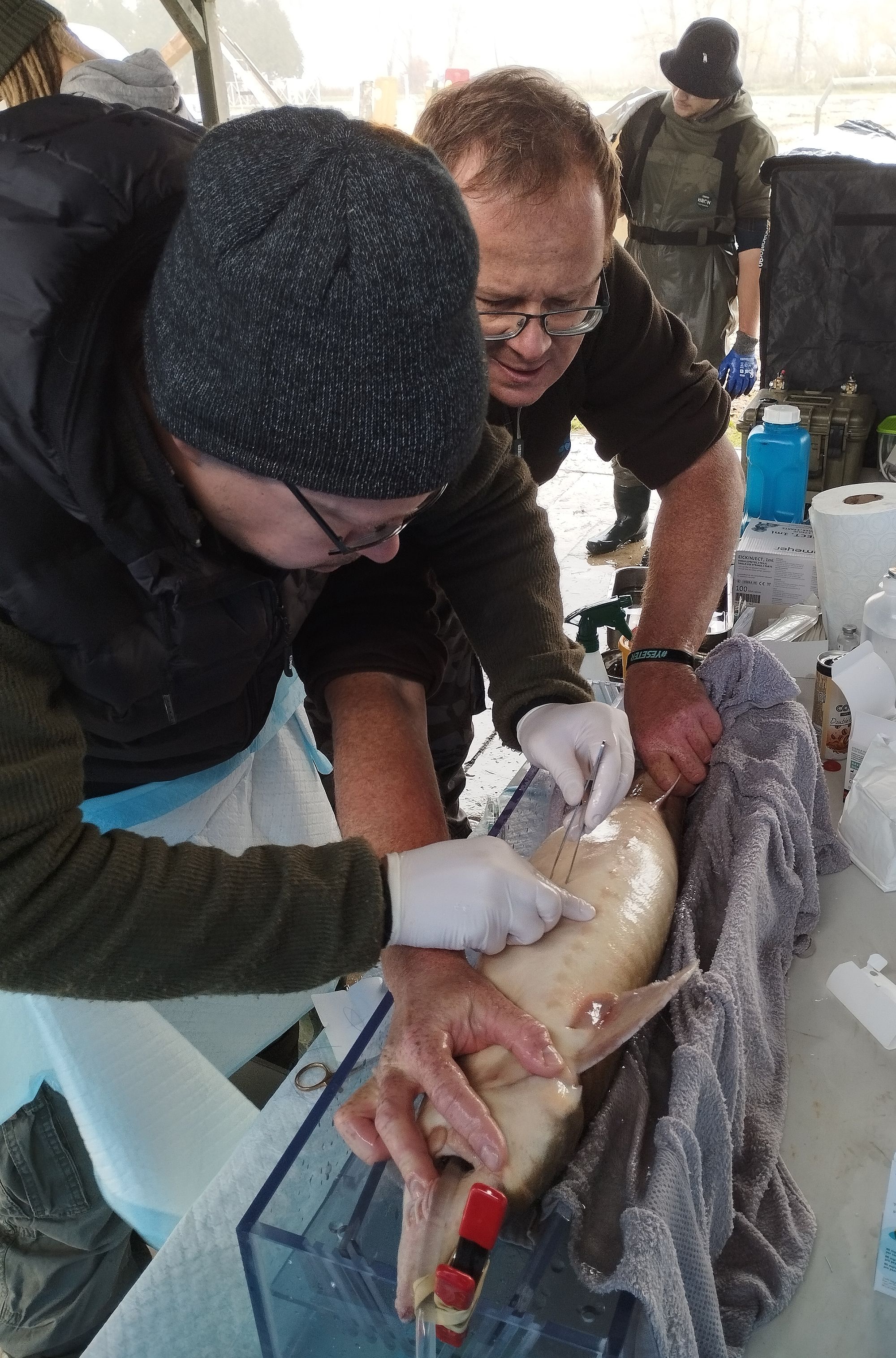
- Foto:
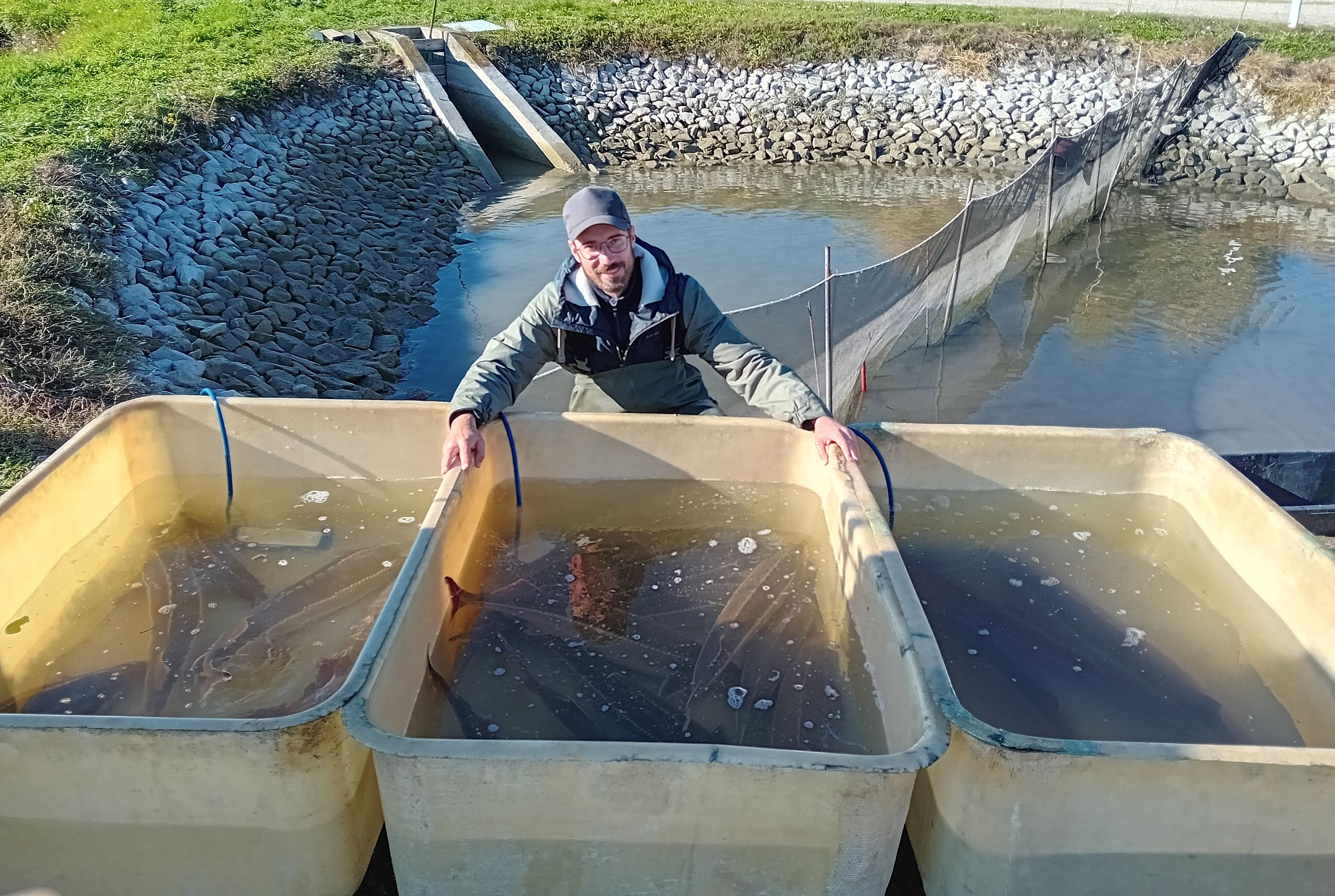
- Foto:
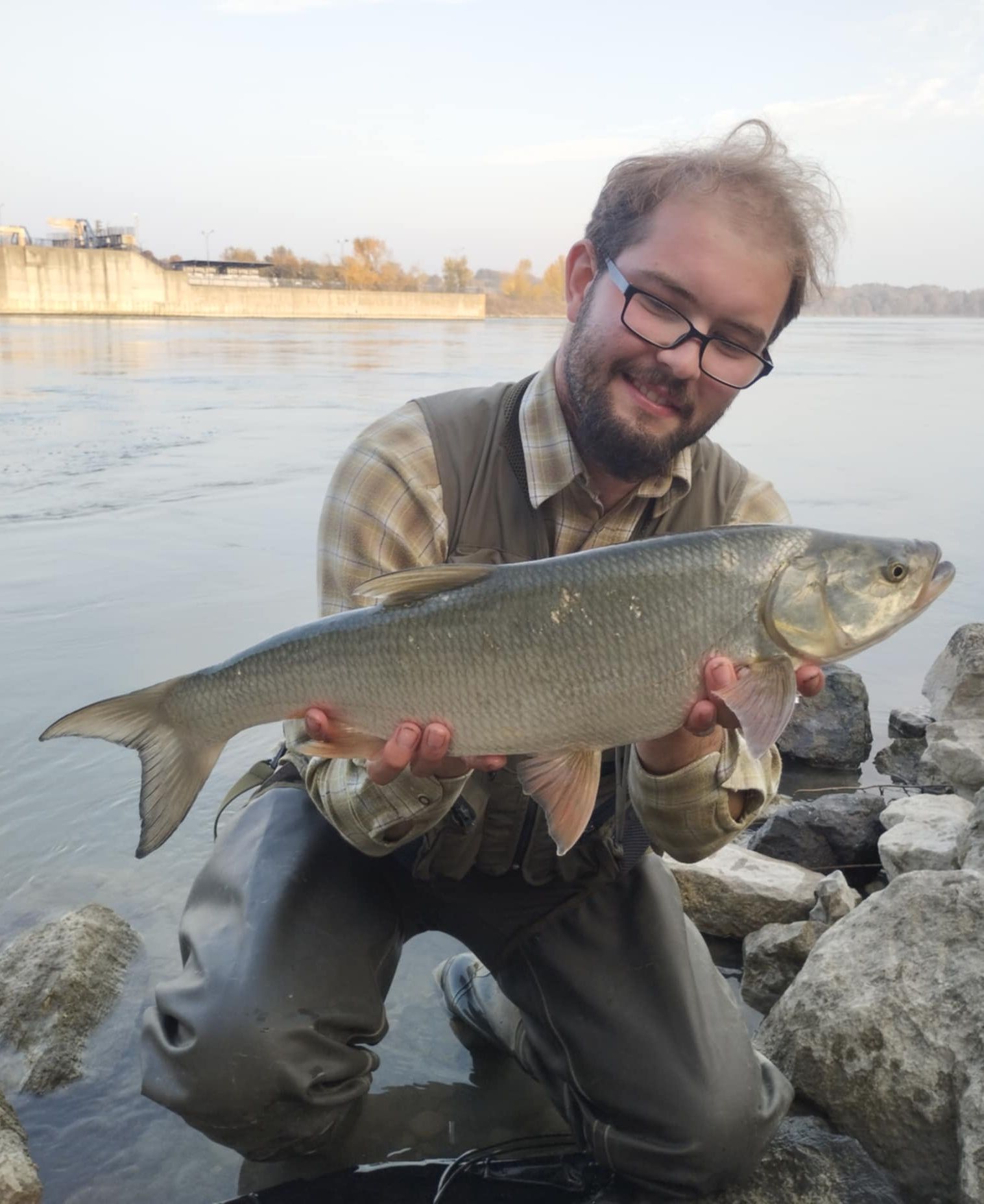
- Foto:
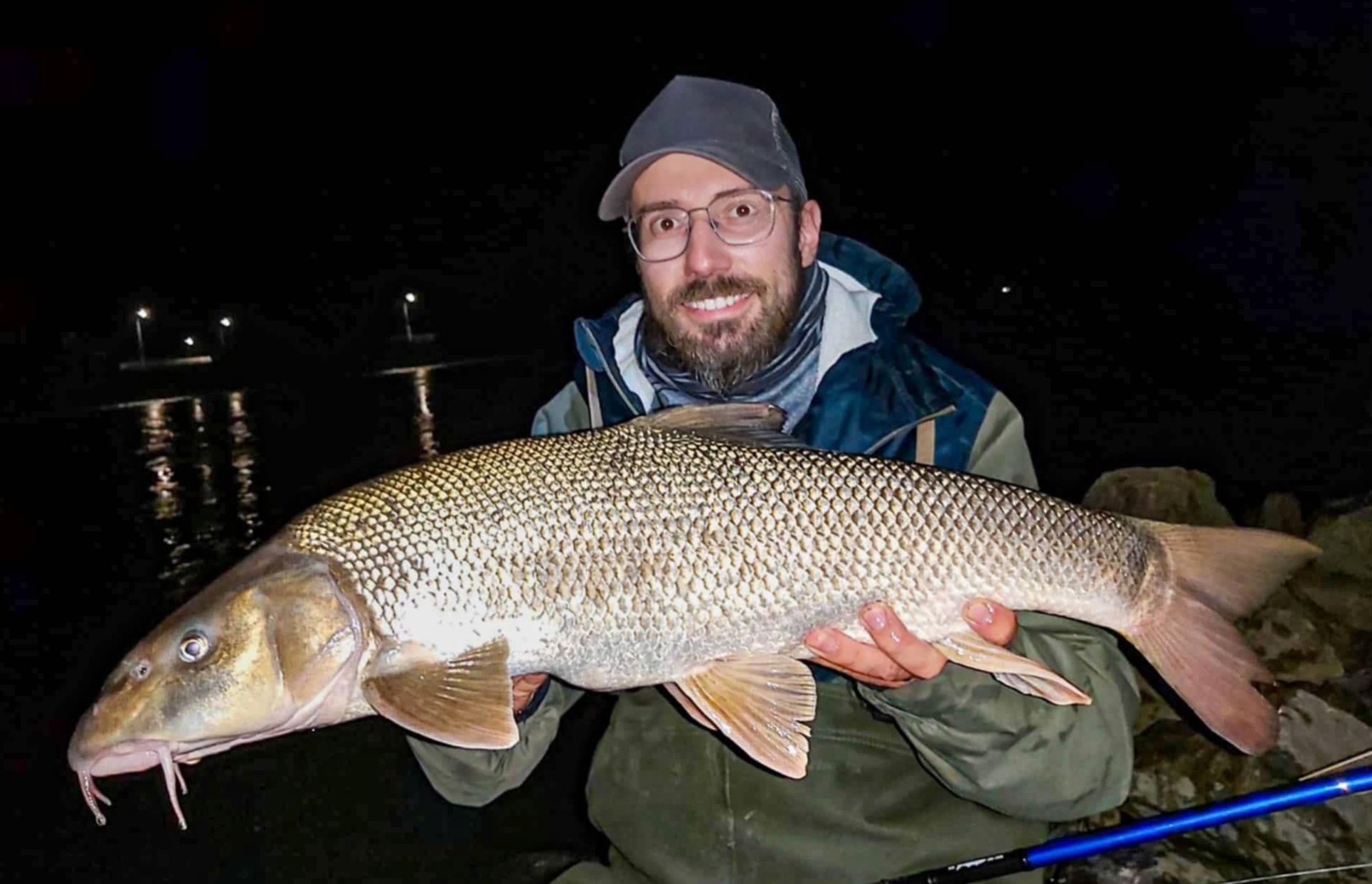
- Foto:
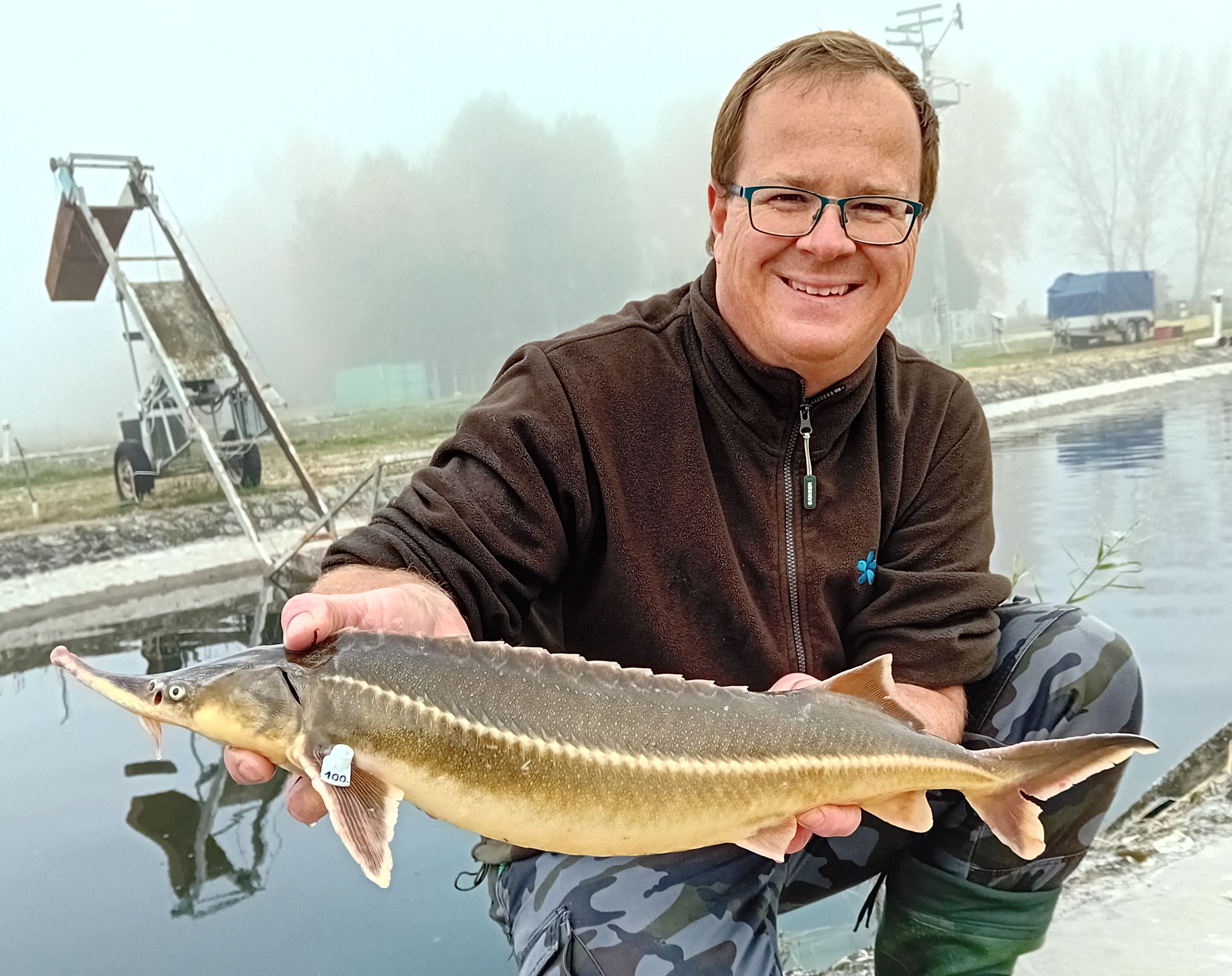
Nejen jeseteři malí (Acipenser ruthenus), ale i parmy říční(Barbus barbus) a boleni draví(Leuciscus aspius) jako významné reofilní druhy ryb, se staly objekty tříletého telemetrického výzkumu pracovníků laboratoře sladkovodních ekosystémů, Fakulty rybářství a ochrany vod Jihočeské univerzity v Českých Budějovicích (FROV JU). Ti v rámci aktivit integrovaného projektu LIFE Living Rivers (101069837/LIFE21-IPE-SK-Living Rivers) zkoumají současnou migrační prostupnost slovensko-maďarské části Dunaje, včetně významných migračních překážek v podobě vodních staveb Čunovo, Dunakiliti a Gabčíkovo, pro ryby.
V této souvislosti bylo pomocí specializovaných akustických rybích značek označeno téměř 120 jeseterů, 50 parem a 50 bolenů. Tyto ryby poskytují cenné informace o své poloze v rámci toku, ale také o teplotě vody či hloubce, ve které se pohybují. Výsledky aktivity mimo jiného umožní objasnit roli vybudovaných vodních staveb v migraci ryb a pomohou navrhnout a následně zrealizovat vhodná opatření pro jejich zprůchodnění. Výsledky studie také přispějí k revitalizaci unikátního ekosystému starého koryta Dunaje a obnovení jeho funkce významného evropského biokoridoru pro sladkovodní faunu. Starý Dunaj totiž ještě v relativně nedávné minulosti tvořil spolu se svou ramenou soustavou vnitrozemskou deltu Dunaje, která však významně chřadne a postupně zaniká po vybudování a zprovoznění systému vodních děl Gabčíkovo.
O aktivitách FROV JU na Dunaji pravidelně informují slovenská a maďarská média, tentokrát o telemetrii jeseterů informovala TV JOJ ve svých hlavních zprávách dne 29.10.2024. Reportáž lze zhlédnout na odkazu: https://fb.watch/vym-0rVgVC/
Podrobnosti o projektu zde.
Autor: RNDr. Bořek Drozd, Ph.D.

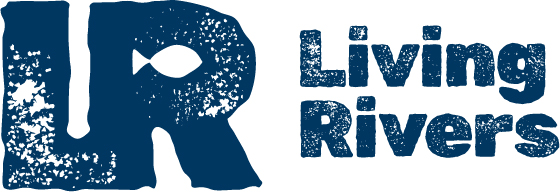
- Fotogalerie:
- Foto:
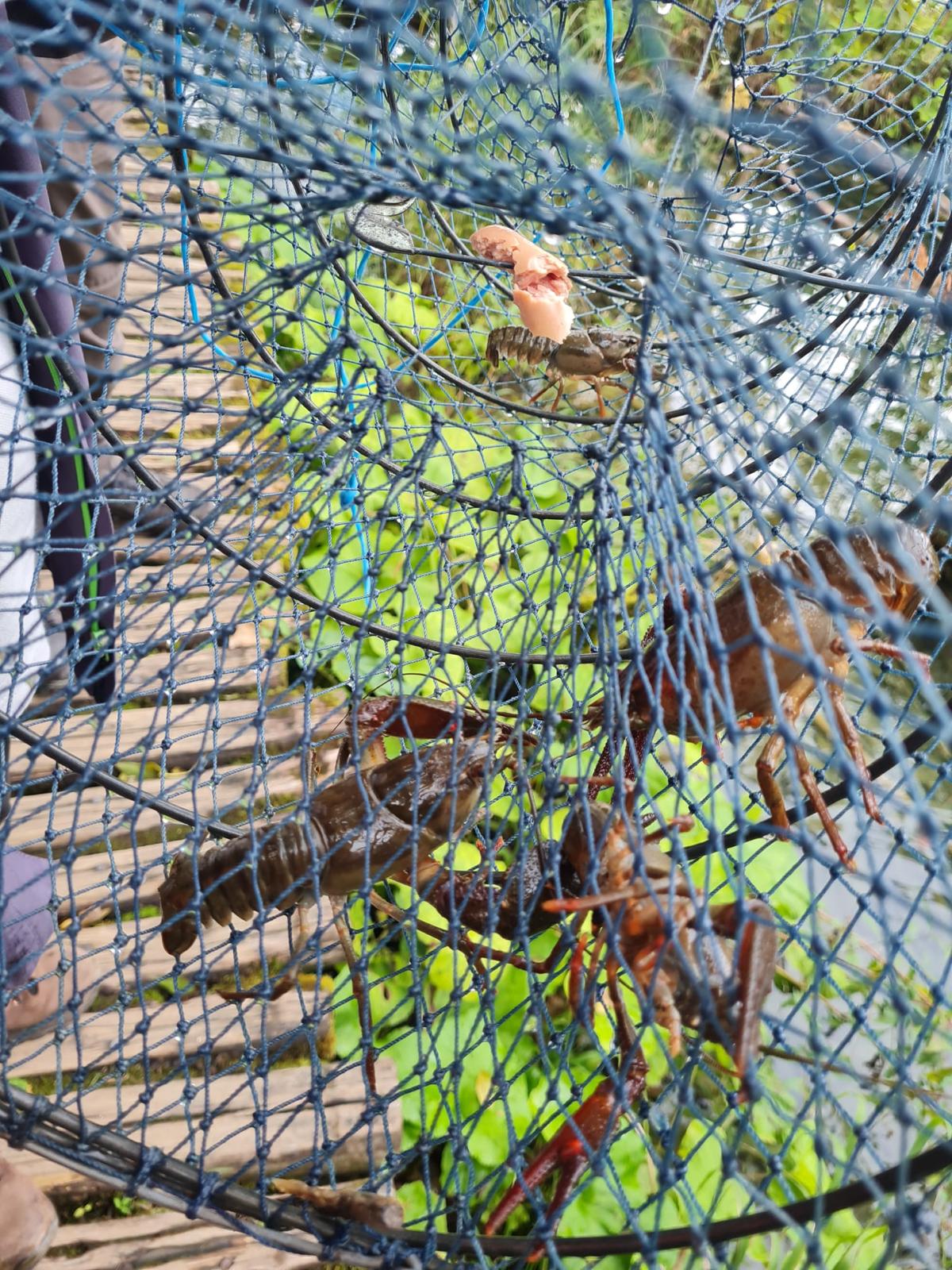
- Foto:
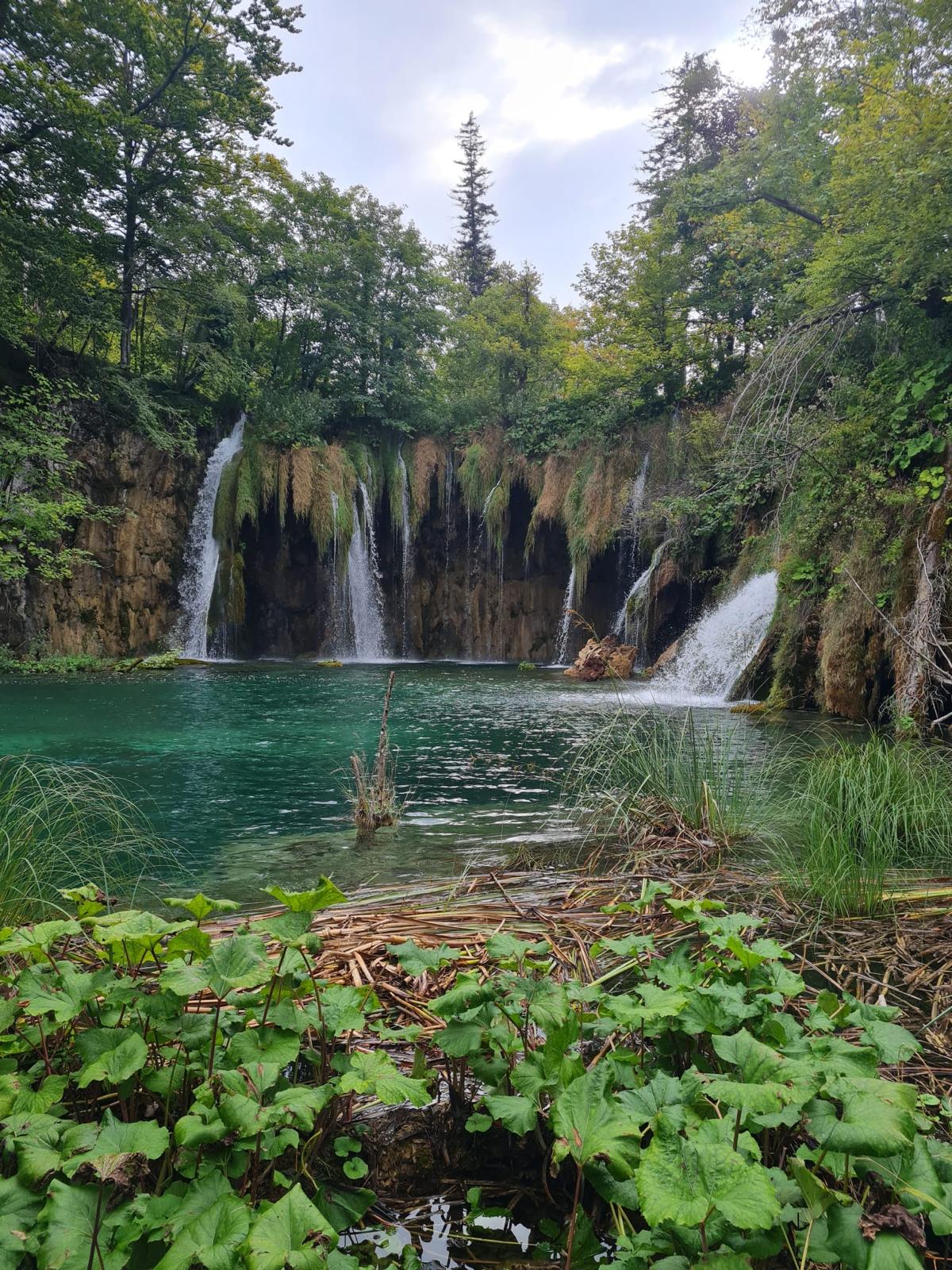
Ve dnech 16.–20. září 2024 se uskutečnilo 24. mezinárodní astakologické sympozium v chorvatském Zábřehu, na kterém měla Jihočeská univerzita zastoupení pětičlenného týmu vědců z Laboratoře sladkovodních ekosystémů Fakulty rybářství a ochrany vod JU.
Během čtyřdenního vědeckého programu byla diskutována témata týkající se výzkumu sladkovodních raků a kromě odborné části byla na programu konference také návštěva národního parku Plitvická jezera, který je domovem řady kriticky ohrožených druhů, včetně populací raka říčního a raka kamenáče.
Během sympozia byl rektor Jihočeské univerzity Pavel Kozák opětovně zvolen mezi členy nejužšího vedení Mezinárodní astakologické konference a v roce 2026 bude s největší pravděpodobností jmenován jejím prezidentem. Volba Pavla Kozáka do čela této světové vědecké organizace jen potvrdila vynikající vědeckou reputaci fakulty na poli výzkumu těchto korýšů.
Fakulta rybářství a ochrany vod JU hledá nové zaměstnance, bližší informace o pozicích najdete zde.
Ve dnech 26. -30.8.2024 se delegace z Fakulty rybářství a ochrany vod JU zúčastnila vědecké konference AQUA 2024 pořádané pod záštitou WAS (World Aquaculture Society) a EAS (European Aquaculture Society). Konference se konala v kongresovém centru Bella Center v Kodani v Dánsku. Fakultu rybářství a ochrany vod na zmíněné akci reprezentovalo celkem 23 účastníků z řad vědeckých a akademických pracovníků, PhD studentů a studentů navazujícího magisterského oboru „Rybářství a ochrana vod“. Pracovníci a studenti FROV JU na konferenci AQUA 2024 celkem prezentovali 12 ústních a 6 posterových příspěvků. Svým zaměřením pokryly prezentace a postery témata jako jsou: precizní akvakulturní farmaření, RAS, rybníky, management generačních ryb, šlechtění chyb, odchov larev, výživa ryb a korýšů, krmná aditiva, nepůvodní druhy ryb, monitoring rybích populací, spolupráce ve vědě, školení a výuce a další. Studenti magisterského oboru se významnou měrou a velmi aktivně zapojili pod taktovkou organizátorů ze studentské sekce EAS do vlastní organizace registrace účastníků a jednotlivých sekcí konference. V rámci tradiční výstavy (Trade show) se FROV JU prezentovala na svém vlastním stánku s propagačními, odbornými a vědeckými materiály. Tato akce významně přispěla k prezentaci fakulty a centra CENAKVA, kdy byly nabízeny její otevřené přístupy infrastruktury na mezinárodní vědecké scéně. Věříme, že tato aktivita umožní FROV JU a CENAKVA další vědecko-pedagogické propojení s dalšími výzkumnými institucemi v zahraničí.
S končícími prázdninami skončily i letošní příměstské tábory Dětské univerzity FROV JU, které junioři mohli absolvovat na FROV JU, MEVPIS Vodňany. Letošním stěžejním tématem Dětské univerzity FROV JU byly klimatické změny. Děti se zábavnou a interaktivní formou her dozvěděli, co je globální oteplování, skleníkový efekt a jaká klimatická opatření mohou pomoci zabránit globálnímu oteplování.
Děti byly rozděleny do 5 skupin a každá skupina představovala zástupce jednoho státu, který se potýkal s výkyvy počasí. Úkolem každého státu byla například eliminace uhlíku z atmosféry, a to ve formě sběru námi známých a oblíbených céček. Jednotlivými hrami se snažili ve svém státě zmírnit dopady klimatických změn a zajistit svému státu bohatství a zároveň i vyšší životní úroveň.
Dva turnusy Dětské univerzity absolvovalo celkem 49 dětí, které v závěru získaly osvědčení za absolvování programu.
Na aktuální nabídku vzdělávacích kurzů se můžete podívat zde.
At the end of April 2024, a prominent Czech fisheries expert, Mr. Ing. Josef Pokorný, CSc. turns ninety years of age. After graduating from the Secondary Fisheries School in Vodňany and the University of Agriculture in Brno - fisheries specialization, he worked at several plants of the State Fisheries Department and then at its headquarters in České Budějovice. In his professional work, he dealt with a number of problems in fish farming, including the performance testing and technology of intensive farming of rainbow trout as well as artificial propagation and rearing of tench fry. These topics, including artificial spawning of tench using hypophysation, were also the subject of his dissertation. Later he was employed at the Research Institute of Fisheries and Hydrobiology in Vodňany, where he held the position of Head of the Department of Genetics and Fish Breeding. Afterwards, he also worked as a teacher at the Secondary Fisheries School in Vodňany and at the University of South Bohemia. He is the author and co-author of several specialized books and fisheries textbooks still in use today. Congratulations on his life jubilee!
- Fotogalerie:
- Foto:
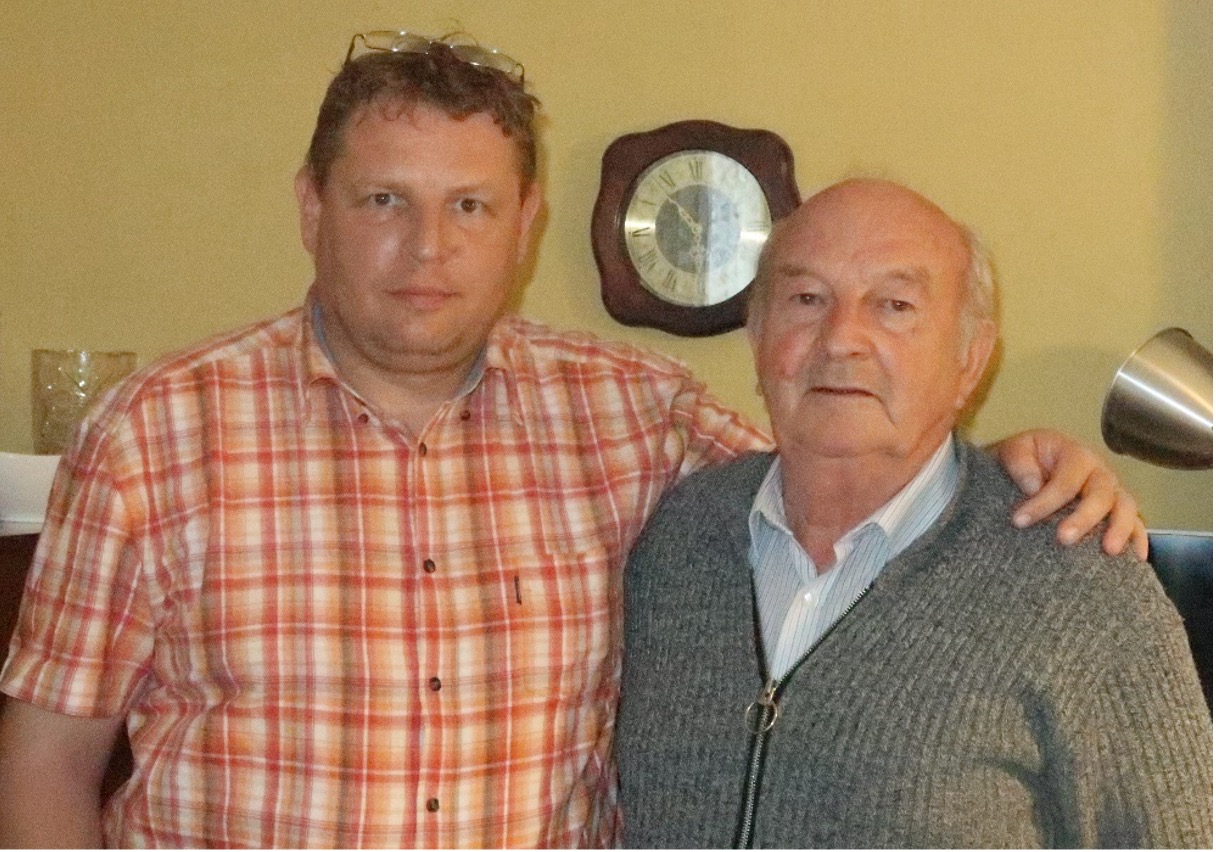
- Foto:

These days our former colleague Ing. Pavel Hartman, CSc. After graduating from the Secondary School of Agriculture in Telč, he studied fisheries specialization at today's Mendel University in Brno. As a fresh graduate he joined the State Fishery Hluboká, o.z. in 1967 as an assistant zootechnician for fish breeding. Later, in 1971, he was transferred to the central laboratory of the State Fishery, o.p. in České Budějovice, where he continuously solved the most pressing problems of the branch enterprise, especially in relation to water quality and its chemistry. He also used his rich practical experience as a co-author of several textbooks of the Secondary Fishing School in Vodňany.
He completed two postgraduate studies and in 1992 defended his dissertation on "Determination of the need for liming of ponds in relation to environmental conditions". In the 1990s he started working for the city of České Budějovice, and gradually worked his way up to managing director of the city company that manages its forests and ponds. Since 2010, he has been actively teaching at the Faculty of Agriculture of the University of South Bohemia and later at the University of South Bohemia, where he has taught professional subjects such as pond aquaculture, management, economics and subsidies of the enterprise and has been in charge of students' internships. He is the author and co-author of a number of scientific publications and several methodologies on carp feeding, liming and fertilization of ponds. In 2014, he published a new textbook, Practical Fish Farming, which was very positively received by the professional community and is now in its third edition. Congratulations on your life anniversary!
- Fotogalerie:
- Foto:
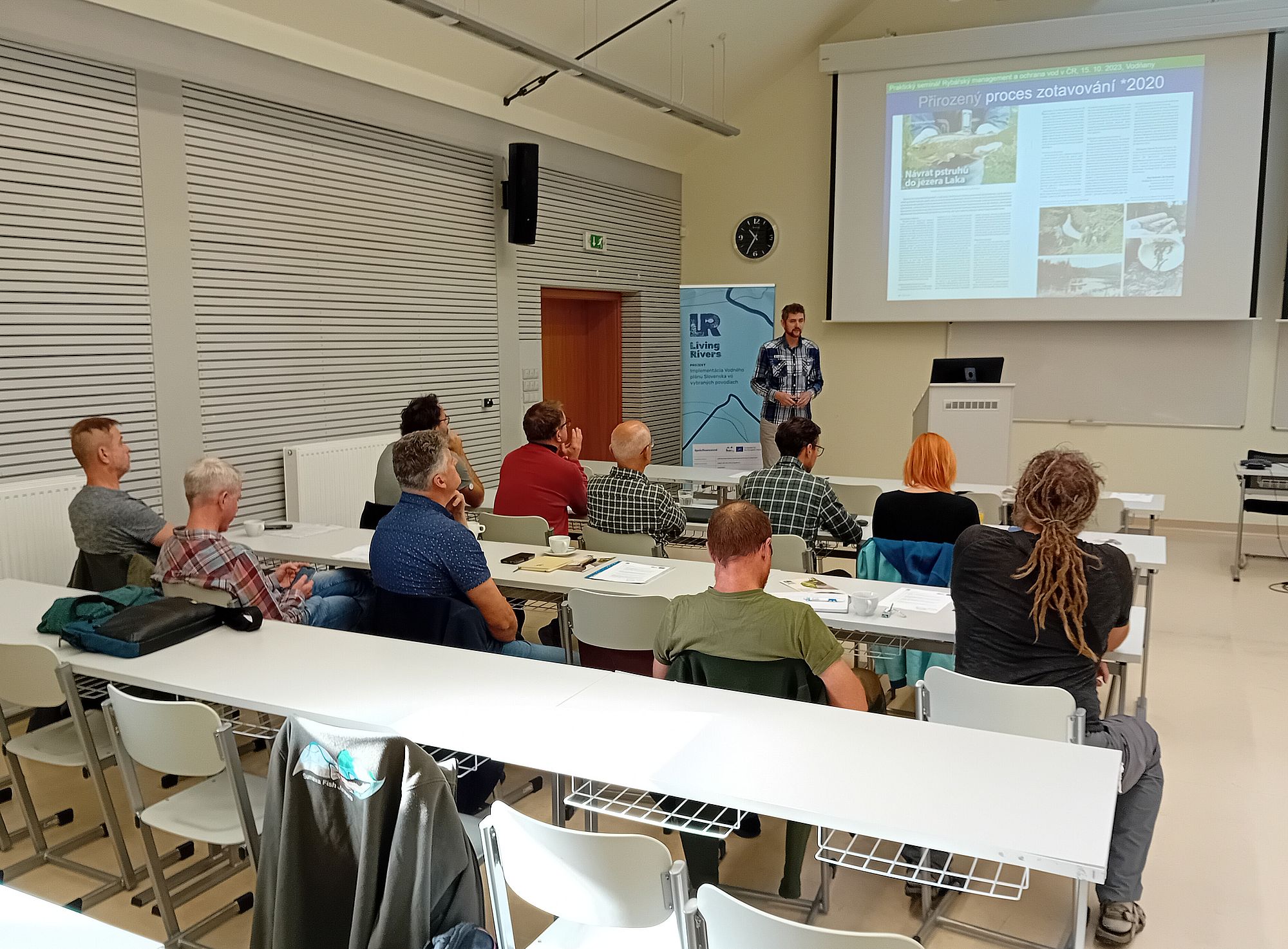
- Foto:
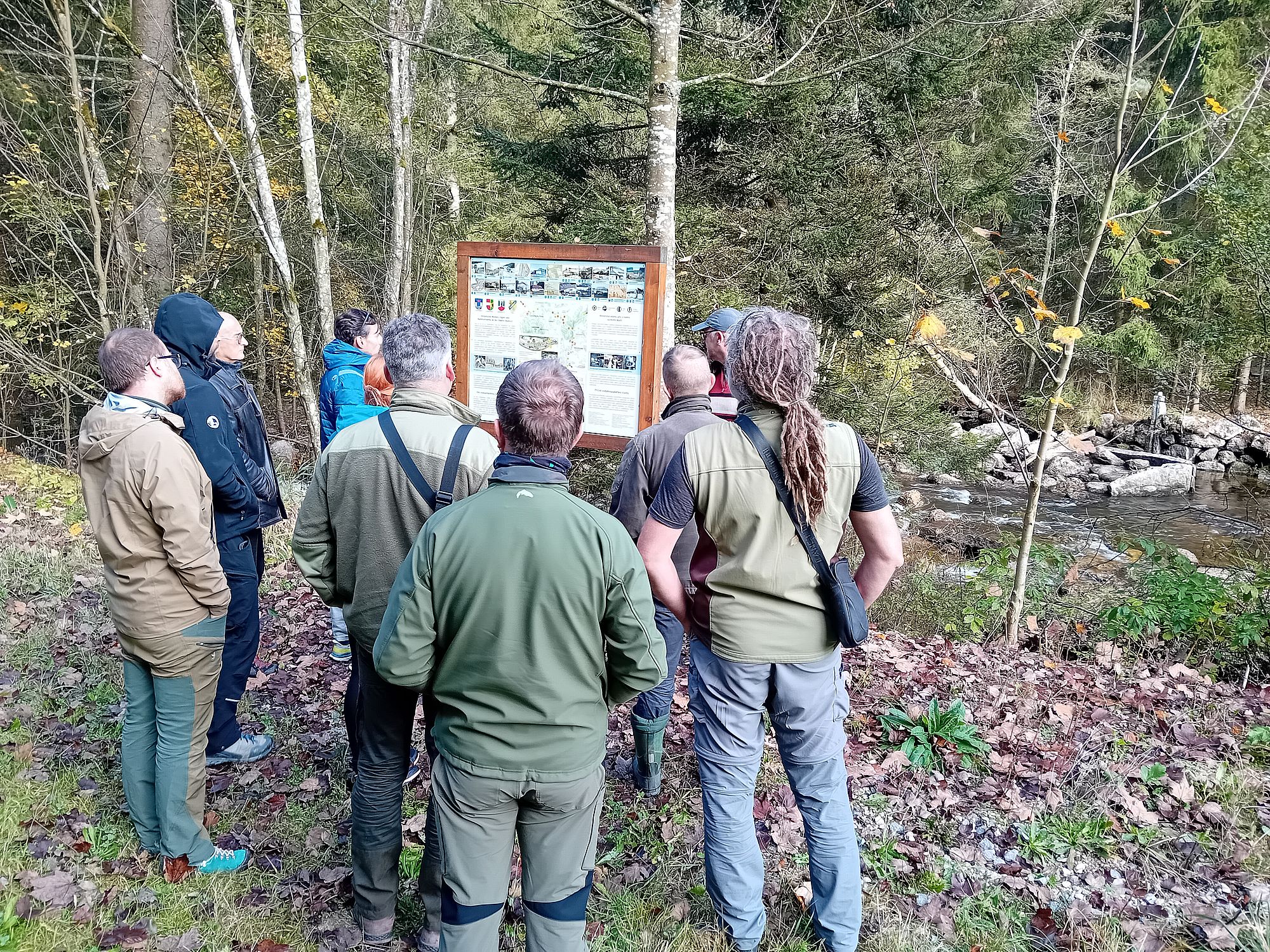
- Foto:
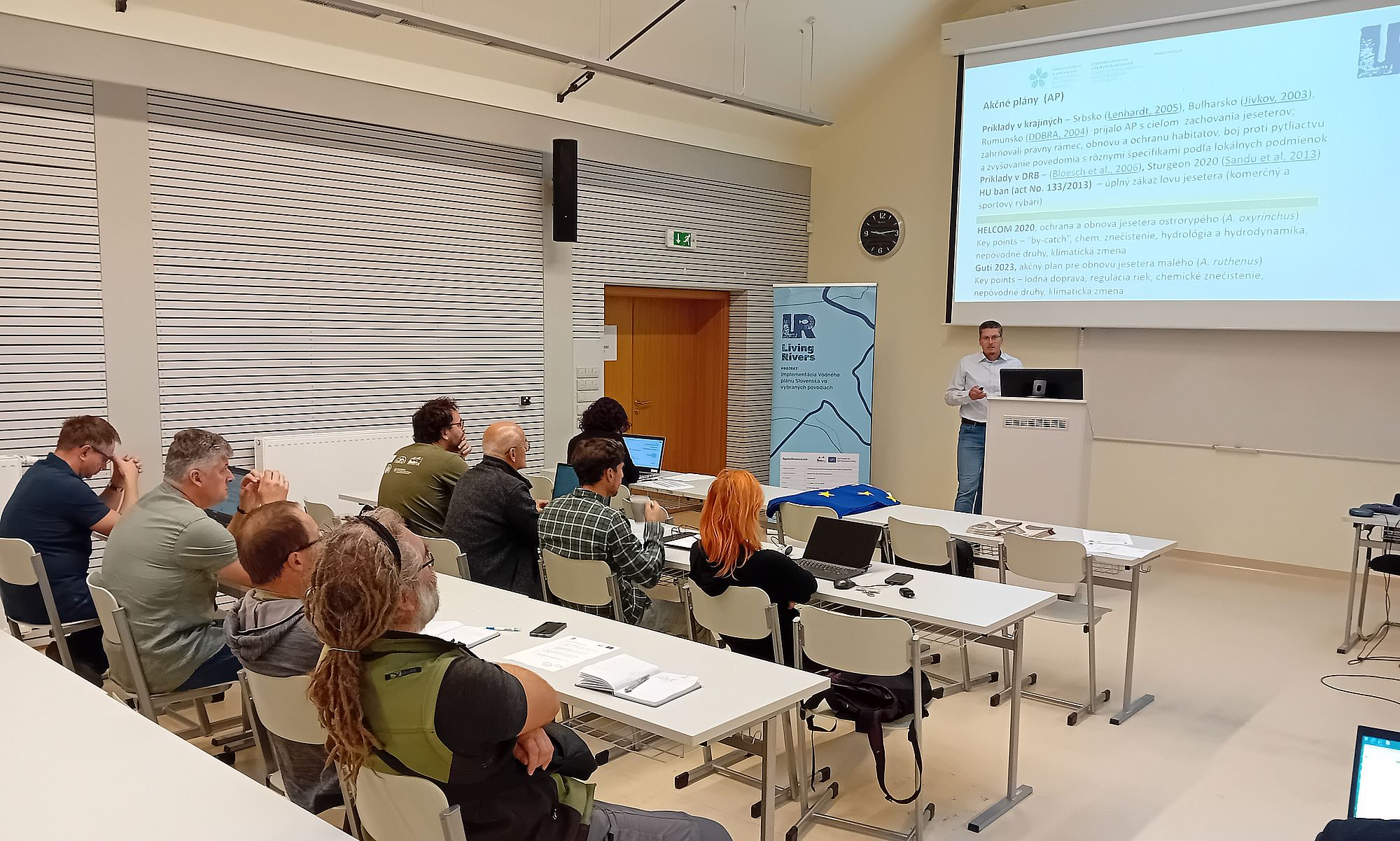
- Foto:
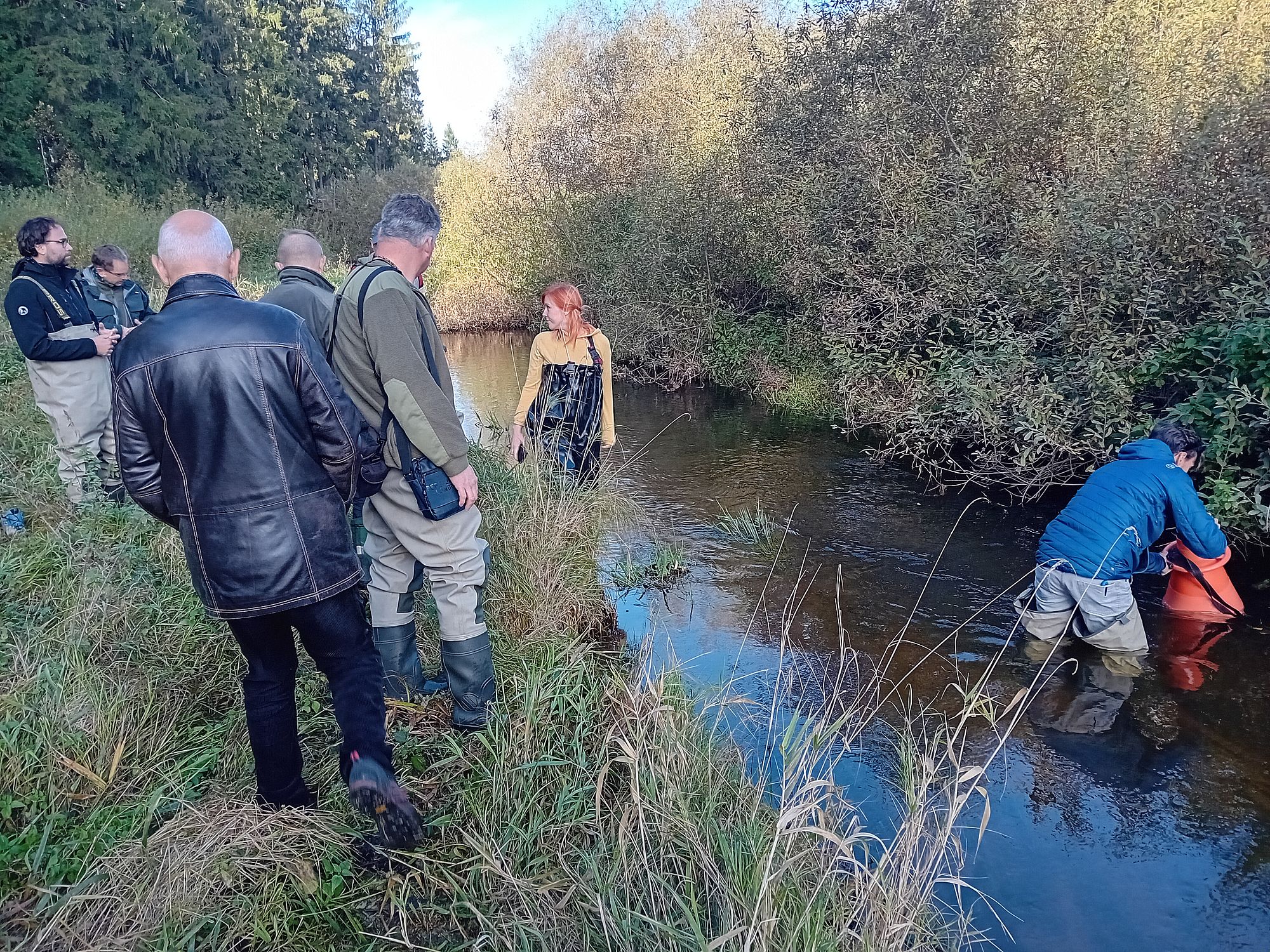
- Foto:
On October 15-17, 2024, a practical seminar "Fisheries management and water protection in the Czech Republic" was held at the Faculty of Fisheries and Protection of Waters USB as part of the integrated project LIFE Living Rivers (101069837/LIFE21-IPE-SK-Living Rivers). The seminar took place in the educational center MEVPIS Vodňany.
During the seminar the participants had the opportunity to listen to presentations, share the best practices and practical examples of good practice. The first day of the seminar was focused on fisheries management of salmonid waters in the Czech Republic. After the introductory presentation of the Living Rivers project, the listeners were introduced to the issue of current fishing management in the salmonid fishing grounds of the Czech Republic, innovative approaches in their management and findings from surveys of fish communities in Šumava. The audience was also introduced to the benefits and limits of shift of the production of fish stocks to controlled conditions.
In the second half of the day, the theoretical knowledge was supplemented by a practical demonstration of rheophilic fish breeding in controlled conditions at the Experimental Fish Culture Facility of FFPW USB, a demonstration of catching fish with an electrofishing device and a visit to a fish hatchery in the NP Šumava for the presentation of good practice in rearing of selected species of rheophilic fishes. The second day was devoted to the protection of sturgeons in pan-European point of view and the process of making passable of streams in the Czech Republic. The audience heard lectures on the pan-European action plan for sturgeons, the protection of sturgeons in situ and news from the activities of the Living Rivers project focused on the protection of sturgeons in the Slovak part of the Danube. In the second half of the day, the listeners were presented with the issue of the current practice of making passable of streams in the Czech Republic, the impact of opening of water barriers for "non-fish" water inhabitants and new methodologies for non-contact monitoring of fish ladders.
The last day of the seminar was devoted to the field trips and practical demonstrations. The participants of the seminar had the opportunity to get acquainted with an example of good practice in the making passable of cross-border streams on the example of the Malše river, where they also had a unique opportunity to look into the life of a critically endangered bivalve - the freshwater pearl mussel. The participants also visited the Genetic Fisheries Center FFPW USB, where they saw the rearing of various sturgeon species under controlled conditions. The entire seminar had a very pleasant atmosphere and was accompanied by many passionate discussions on current topics of practical protection of watercourses in Europe.
Projectdetails.
On behalf of the organizing team of FFPW USB, Dr. Bořek Drozd





























